“Yaoliu Jing in Chang Xiang Si corresponds to Bao, Dai, and Chai in Dream of the Red Chamber.”
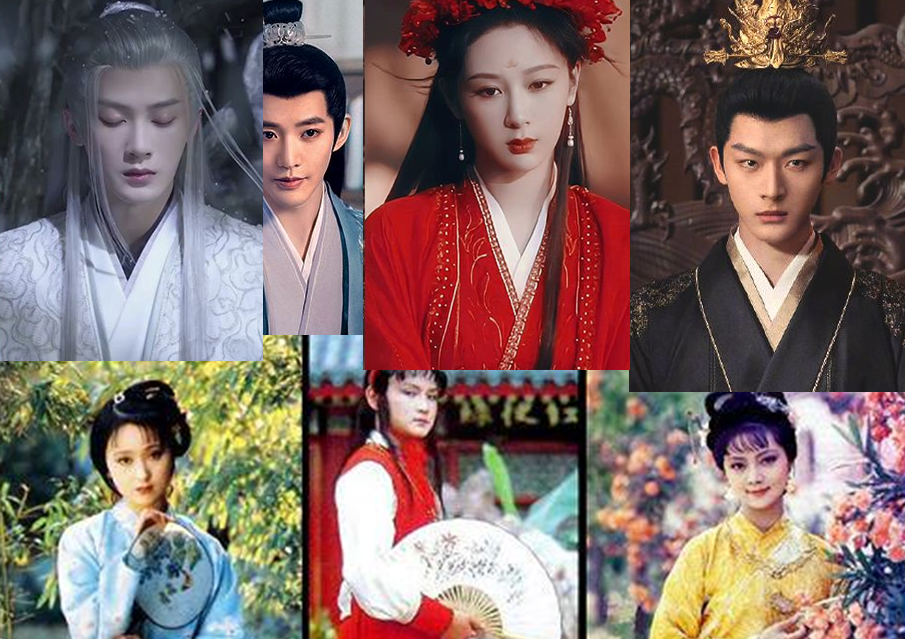
It is said that Tonghua’s Chang Xiang Si borrows many writing techniques from 红楼梦 (Dream of the Red Chamber). What I found is that 宝钗 (Baochai) and 黛 (Dai) correspond exactly to 夭玹(璟)(Yao Xuan (Jing)) and 柳 (Xiangliu). Below, I will list some interesting props and plot points.
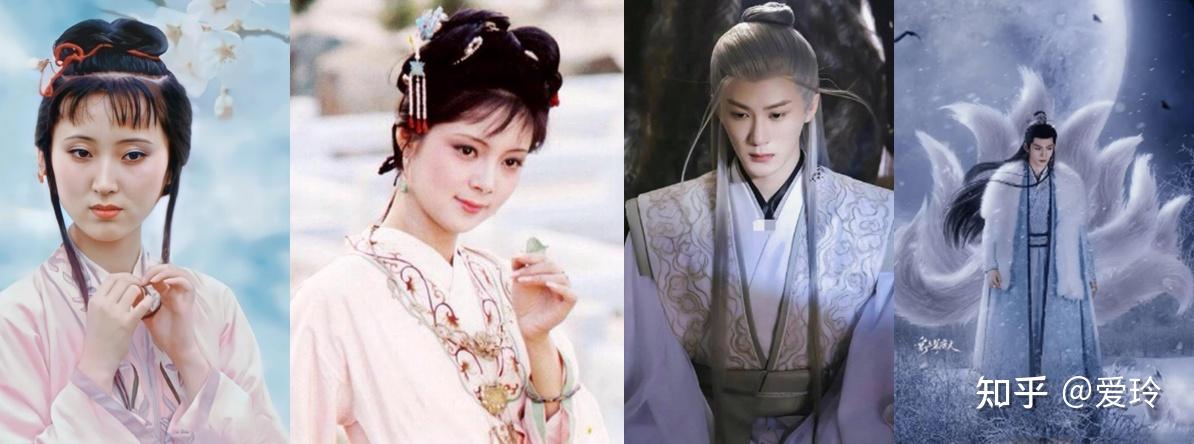
Name decomposition hints
贾宝玉 (Jia Baoyu) → 玖瑶 (Jiuyao), both names contain two “王” (king) characters.
Decomposition of 贾宝玉:
贾 (Jia): After returning west, revived in a sea shell.
宝玉 (Baoyu): Disciple of the Jade Mountain Queen Mother, loves eating jade melon; mother gives jade melon, Fenglong gives jade melon — two “玉” (jade) characters.
林黛玉 (Lin Daiyu) → 相柳 (Xiangliu), both contain double “木” (wood) characters, and wear jade pendants.
涂山璟 (Tushan Jing), name contains one “王” (king).
Chuanzi gave Sangtian a green hairpin.
He himself has a jade fox and wears a jade hairpin.
But there is no “林” (Lin), so he imitates Daiyu.
玱玹 (Cangxuan) also has double “木” (wood). I analyzed that Laomu is a reflection of 玱玹 (Cangxuan). But because Xiaoyao gave him a fox tail, he does not have a jade pendant.
Judgment verse: “玉带林中挂” (The jade belt hangs in the forest).
薛宝钗 (Xue Baochai) — on the surface appears to be Tushan Jing, but in reality, is 玱玹 (Cangxuan).
Judgment verse: “金簪雪里埋” (The golden hairpin is buried in the snow).
The golden hairpin refers to 玱玹 (Cangxuan), buried in the cold snow.
Its meaning is overshadowed by Xiangliu.
This is reflected in the second segment of the opening theme song.
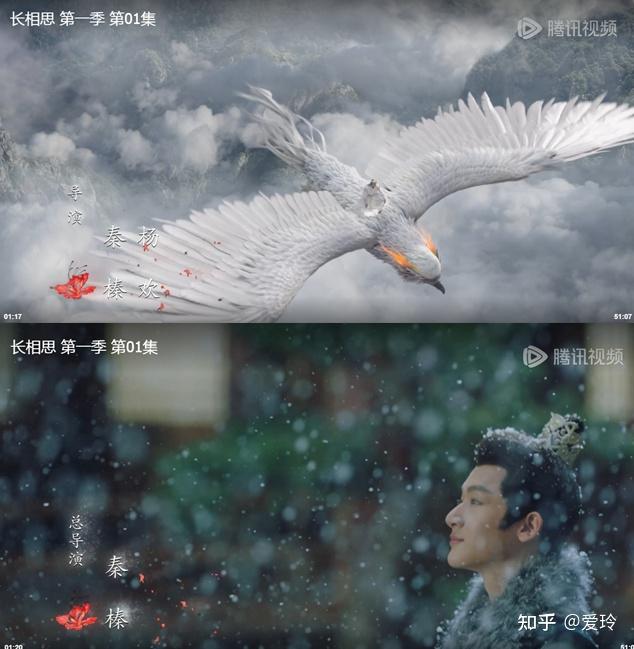
Xiangliu rode a giant bird and flew past, whil Cangxuan was covered by snow.
贾雨村 (Jia Yucun): “玉在椟中求善价,钗于奁内待时飞” (The jade seeks a good price in its box; the hairpin waits in its case for the right time to fly).
Fangfeng Bei, in order to eat roasted meat with Xiaoyao, treated the jade pendant as irrelevant. By doing this, he stopped being Daiyu, became Lin Wuyu, and thus removed Lin Daiyu’s fated destiny. He gave up being an immortal to experience the human world, becoming Fangfeng Bei.
Romantic line: Baoyu and Daiyu share true love, represented by a double-headed arrow.
Episode 37: Xiaoyao used 玉红草 (Jade Red Herb) to grill fish for Xiangliu. In other words, she gave herself to Xiangliu to eat. 玉红草 (Jade Red Herb) also causes one to sleep for three hundred years, dreaming continuously.
The entire 长相思 (Chang Xiang Si) should be like 红楼梦 (Dream of the Red Chamber): a dream, a dream one does not want to wake from.
Classic scenes and props from Dream of the Red Chamber in Chang Xiang Si
Chang Xiang Si borrows classic scenes and props from Dream of the Red Chamber. Generally, when a prop appears, it represents the character’s attributes.
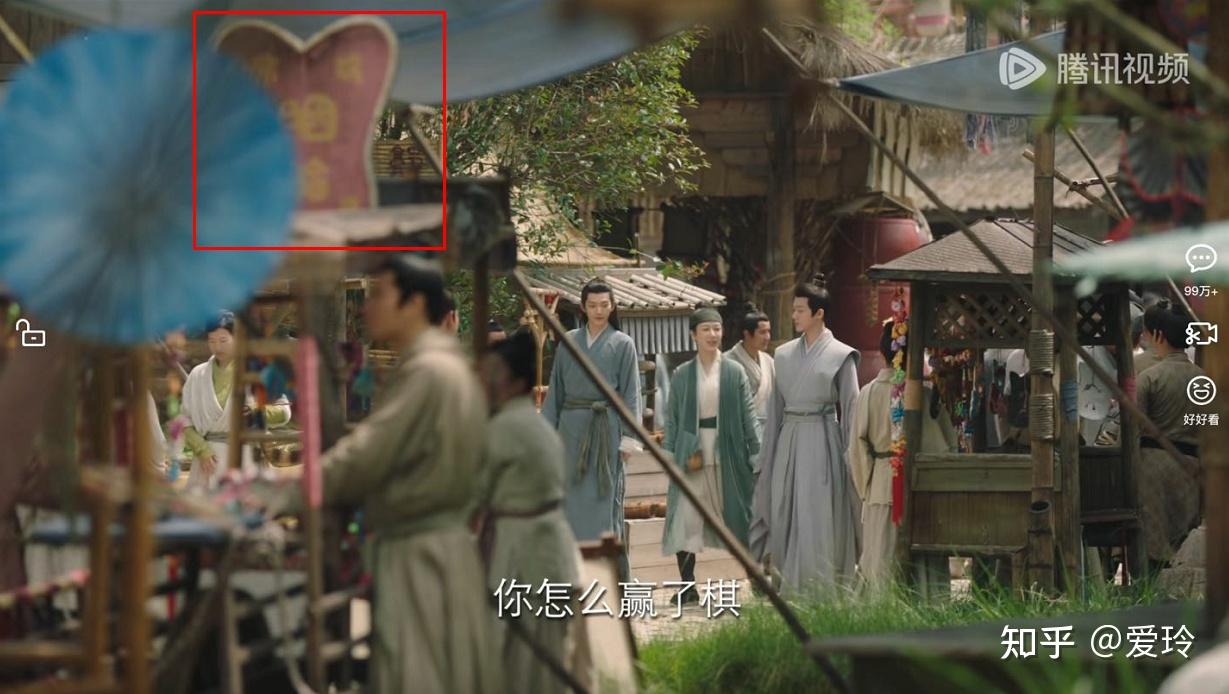 Baoyu, who mingles in circles of the opposite sex, is partially hidden by a blue umbrella, representing that in his heart he still cares for Xiangliu (Daiyu).
Baoyu, who mingles in circles of the opposite sex, is partially hidden by a blue umbrella, representing that in his heart he still cares for Xiangliu (Daiyu).
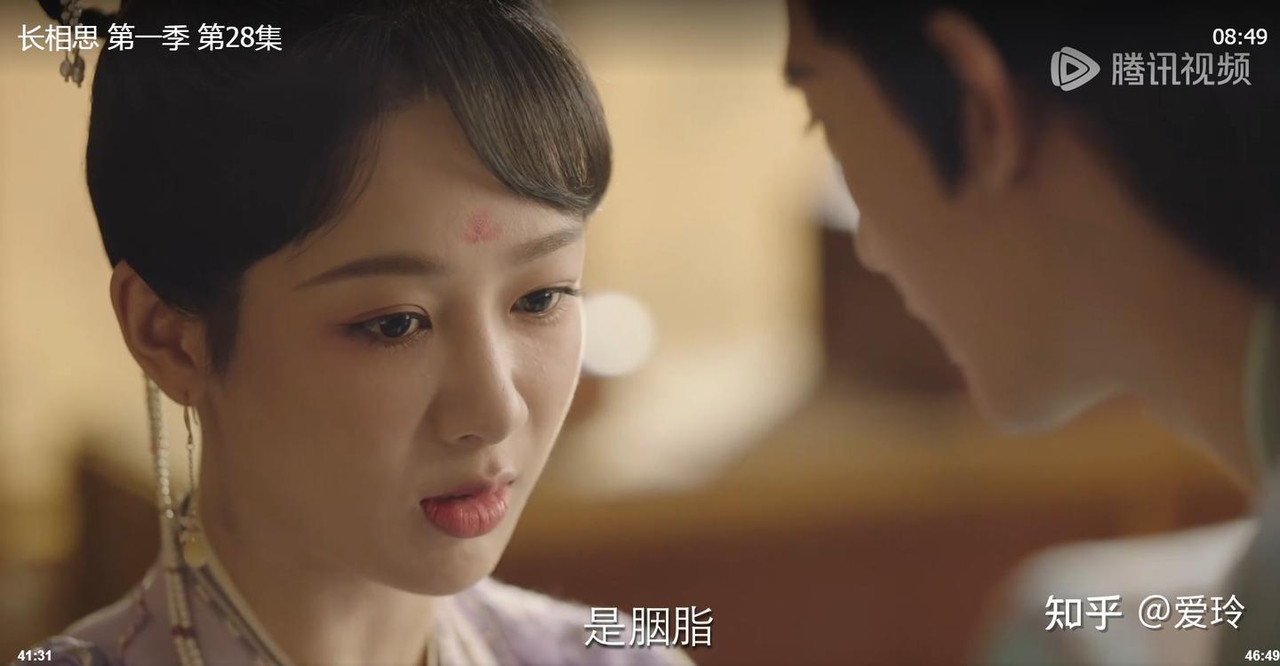 Baoyu loves eating rouge
Baoyu loves eating rouge
- Baoyu wearing a straw raincoat and teasing the old man are classic scenes from Dream of the Red Chamber
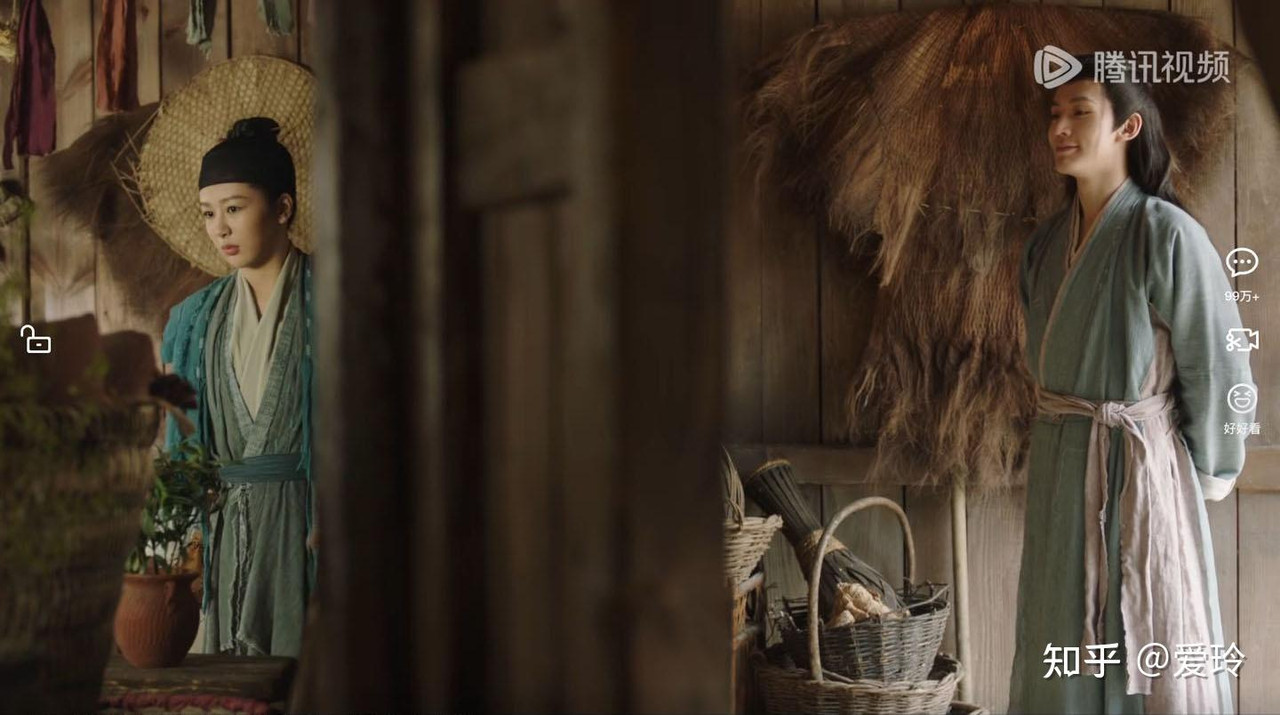 Whenever a straw raincoat and straw hat appear, it signifies Baoyu’s character traits are highlighted.(Note:he is Liu-Shiqi)
Whenever a straw raincoat and straw hat appear, it signifies Baoyu’s character traits are highlighted.(Note:he is Liu-Shiqi)
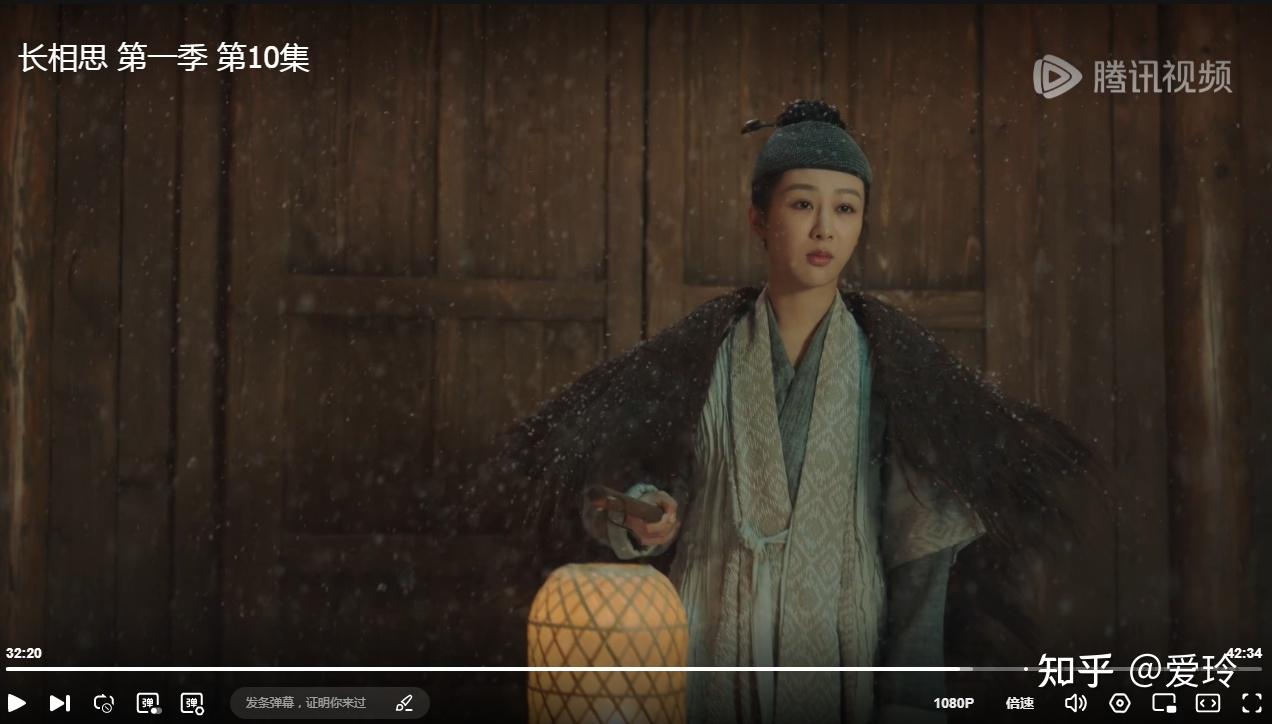 Baoyu carried a lantern to see Cangxuan, formerly Daiyu, later Baochai, for a farewell.
Baoyu carried a lantern to see Cangxuan, formerly Daiyu, later Baochai, for a farewell.
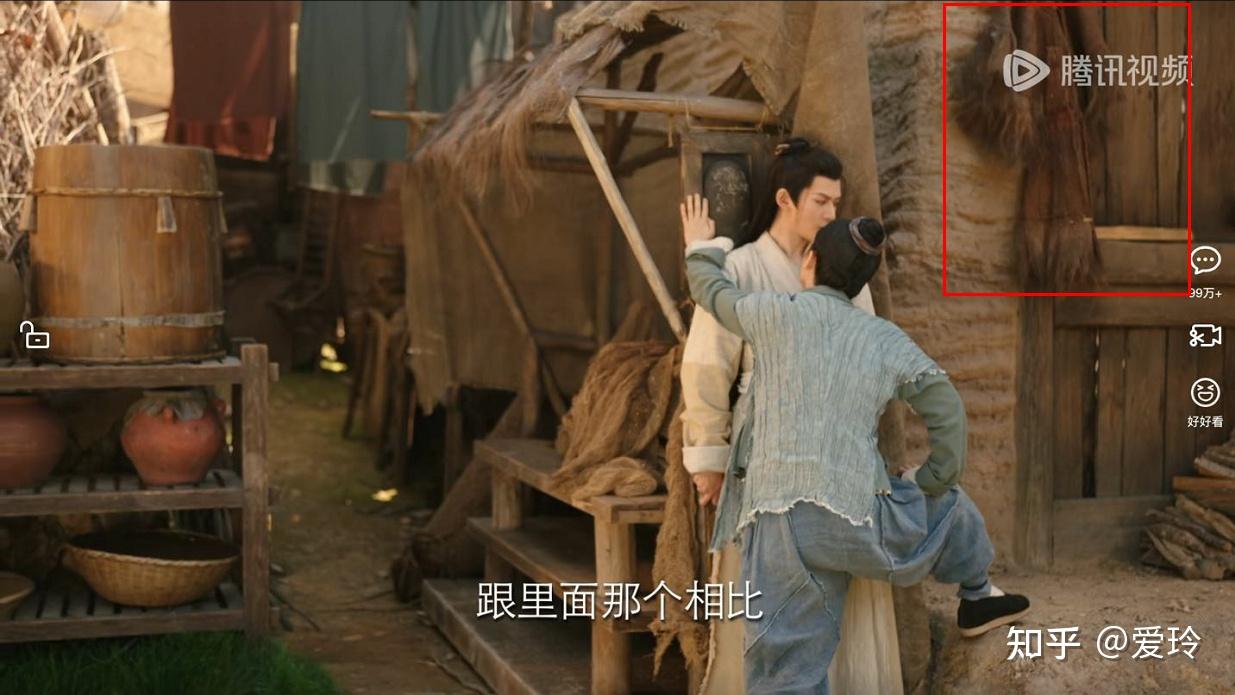
Baoyu appears, teasing Ye Shiqi
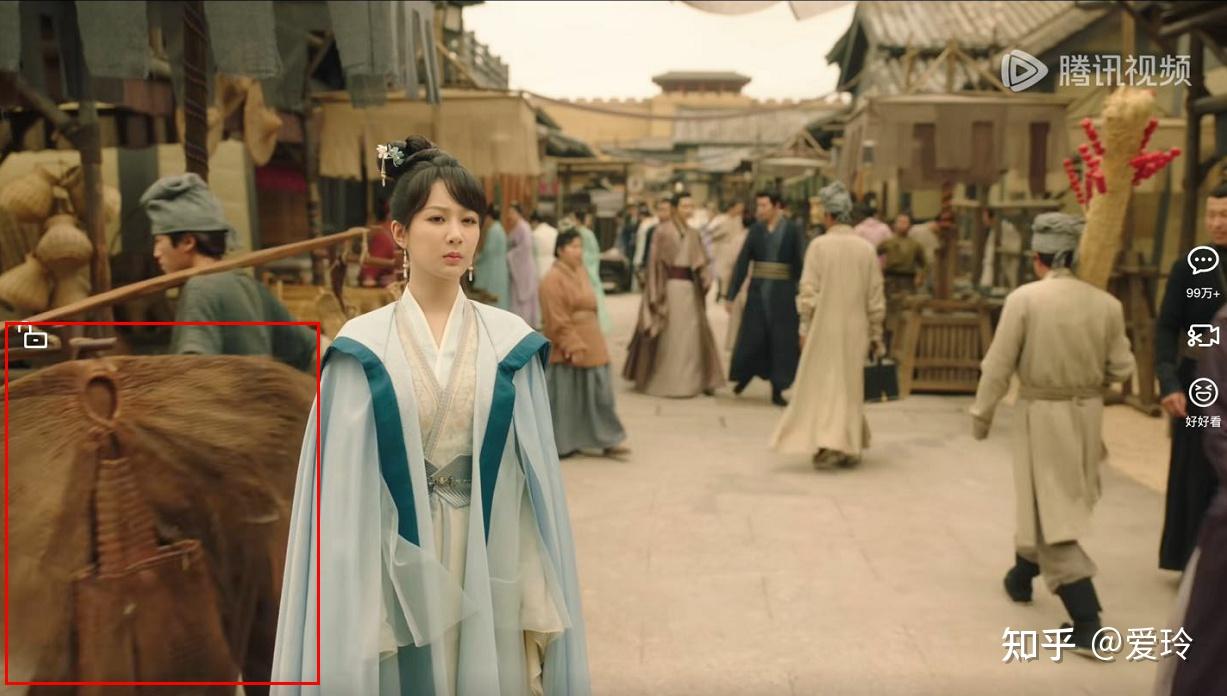 On their second meeting, planning to watch Fangfeng Bei practice archery, Baoyu’s character traits are highlighted
On their second meeting, planning to watch Fangfeng Bei practice archery, Baoyu’s character traits are highlighted
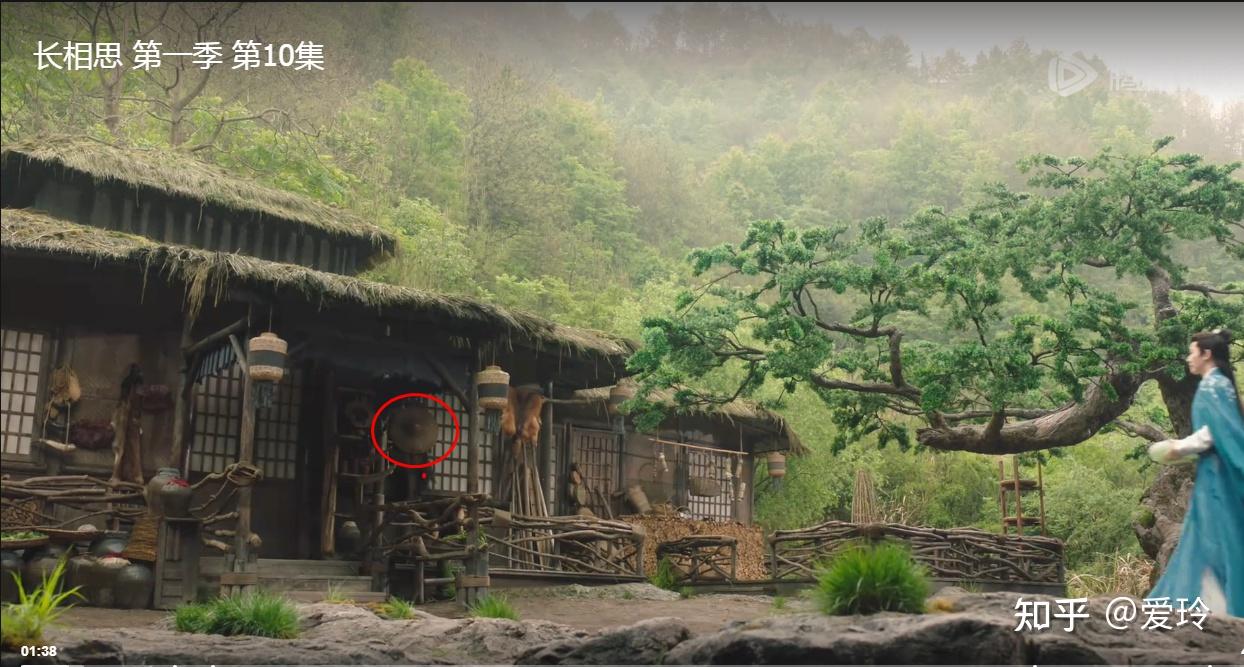 The straw raincoat and straw hat at the entrance of Xiangliu’s private residence in Chenrong Mountain also indicate that this is Baoyu’s home. The shared items in the Xiaoliu household serve as proof that the two are married
The straw raincoat and straw hat at the entrance of Xiangliu’s private residence in Chenrong Mountain also indicate that this is Baoyu’s home. The shared items in the Xiaoliu household serve as proof that the two are married
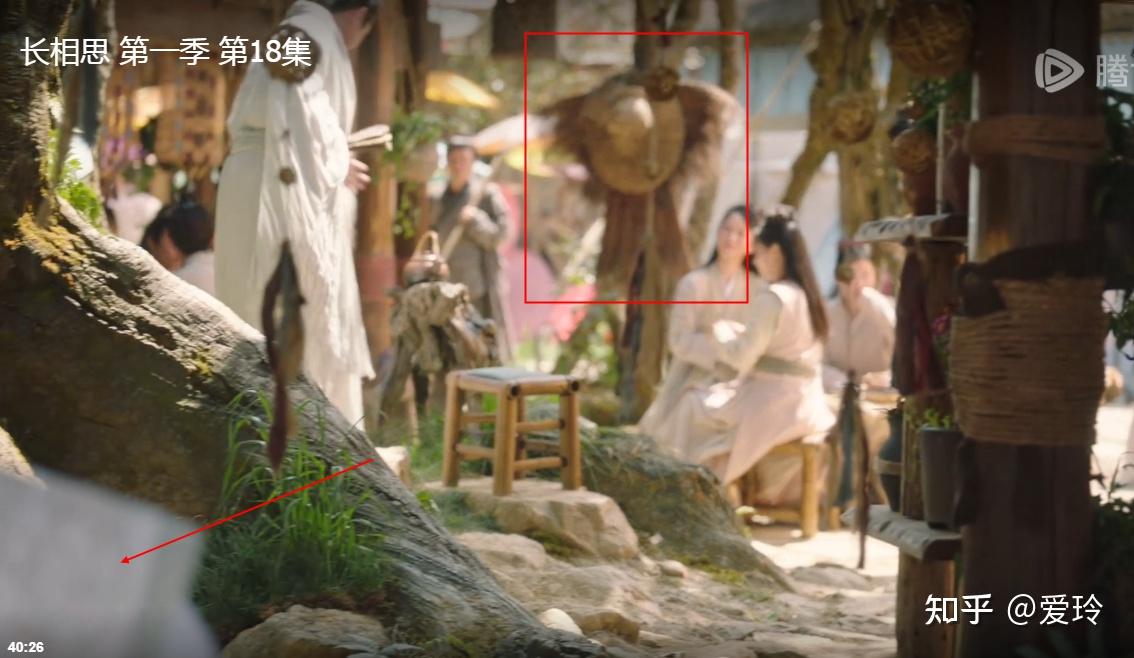 The spirit stone in Qing Shui Town is narrating the celebration of Da Wang ji, with Xiangliu eavesdropping. A set of Xiaoyao’s exclusive straw raincoat and straw hat is hanging here, which also signifies that Xiaoliu has become Baoyu and is going to mingle in the women’s circles.
The spirit stone in Qing Shui Town is narrating the celebration of Da Wang ji, with Xiangliu eavesdropping. A set of Xiaoyao’s exclusive straw raincoat and straw hat is hanging here, which also signifies that Xiaoliu has become Baoyu and is going to mingle in the women’s circles.
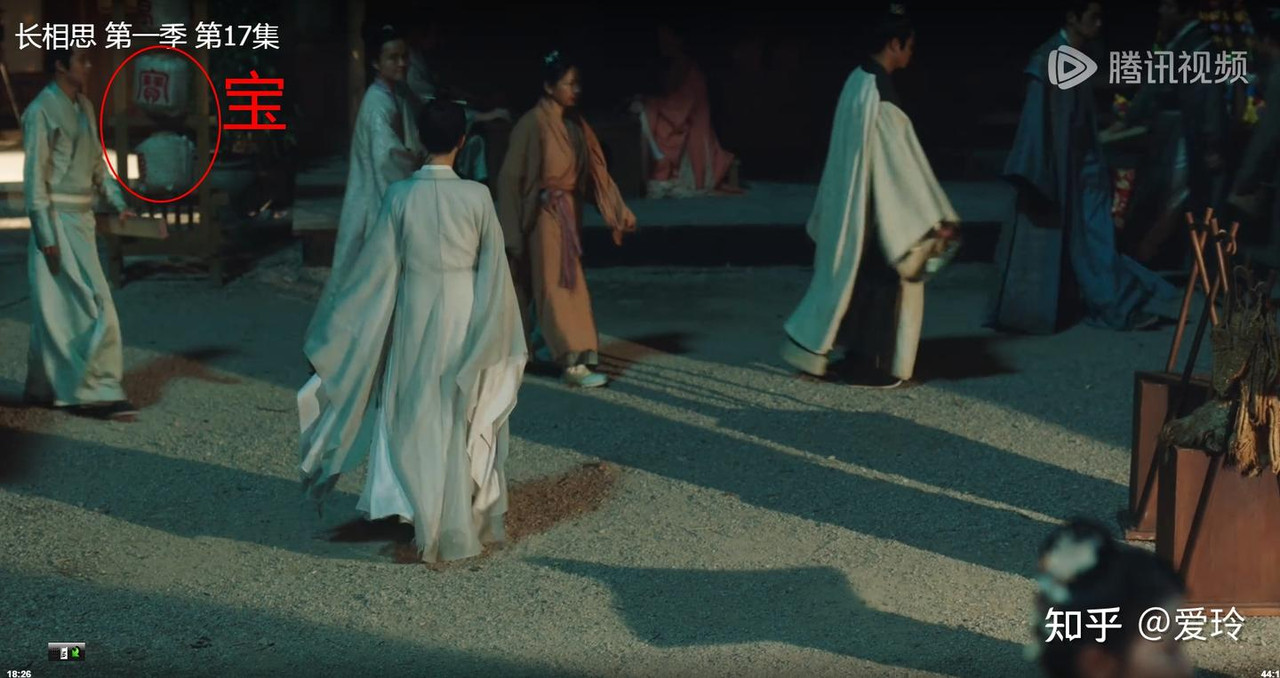 Here is the scene in episode 17 of Baoyu leaving Daiyu, shown from behind. Xiaoyao has turned back into Baoyu, which is actually also the signature of Wan Baode in episode 27, only showing the character ‘Bao’
Here is the scene in episode 17 of Baoyu leaving Daiyu, shown from behind. Xiaoyao has turned back into Baoyu, which is actually also the signature of Wan Baode in episode 27, only showing the character ‘Bao’
- After returning to Haoling, he wore jade on his head while in male attire.
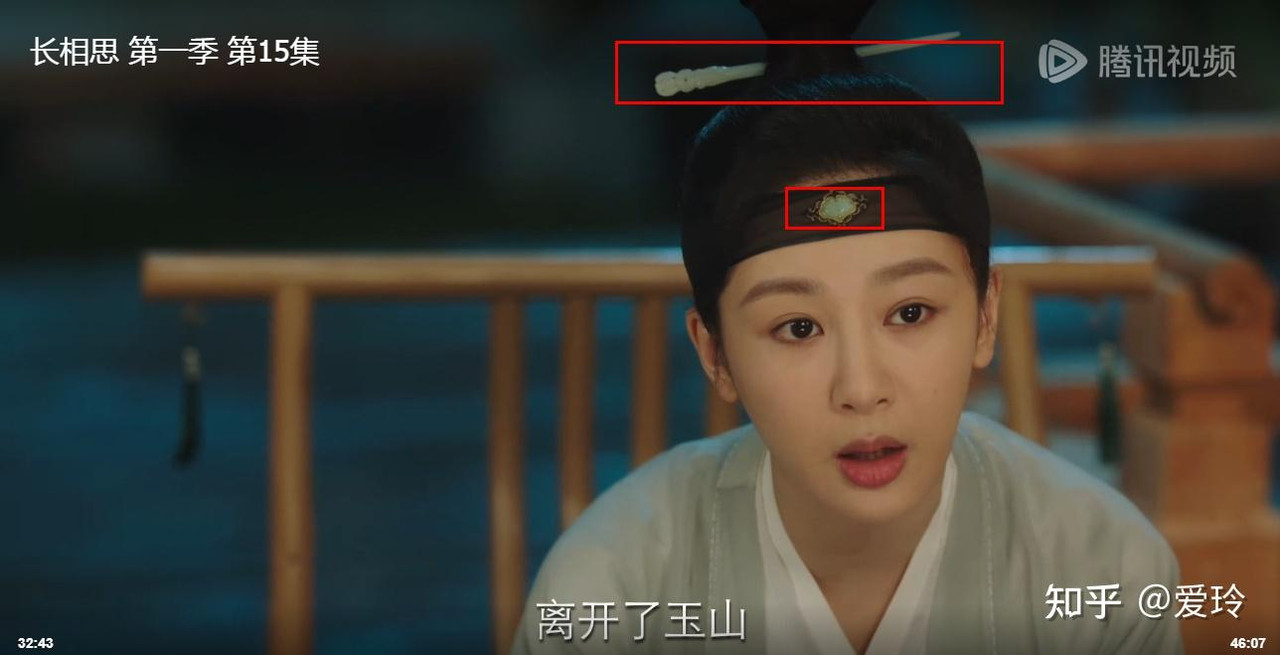 Wearing jade and a jade hairpin.
Wearing jade and a jade hairpin.
- Lin Daiyu’s jade pendant. I specifically discuss this here; just see the link
One enters the dream, the other does not
Lin Daiyu in Cao Xueqin’s writing, appearing like a celestial fairy, exists on a spiritual level and is Baoyu’s dream lover. Baochai exists on a real-world level, is calculating, and is Baoyu’s life partner. Because reality is far less beautiful than dreams, one feels “ultimately dissatisfied.”
Similarly, Xiangliu, Tushan Jing, and Cangxuan relate to Xiaoyao in the same way. However, Xiangliu additionally has the Fangfeng Bei disguise, sold the jade, and the two even sing “Prefer the mortal world’s fireworks,” so Xiangliu breaking through Lin Daiyu’s ending leads to a happy ending (HE).
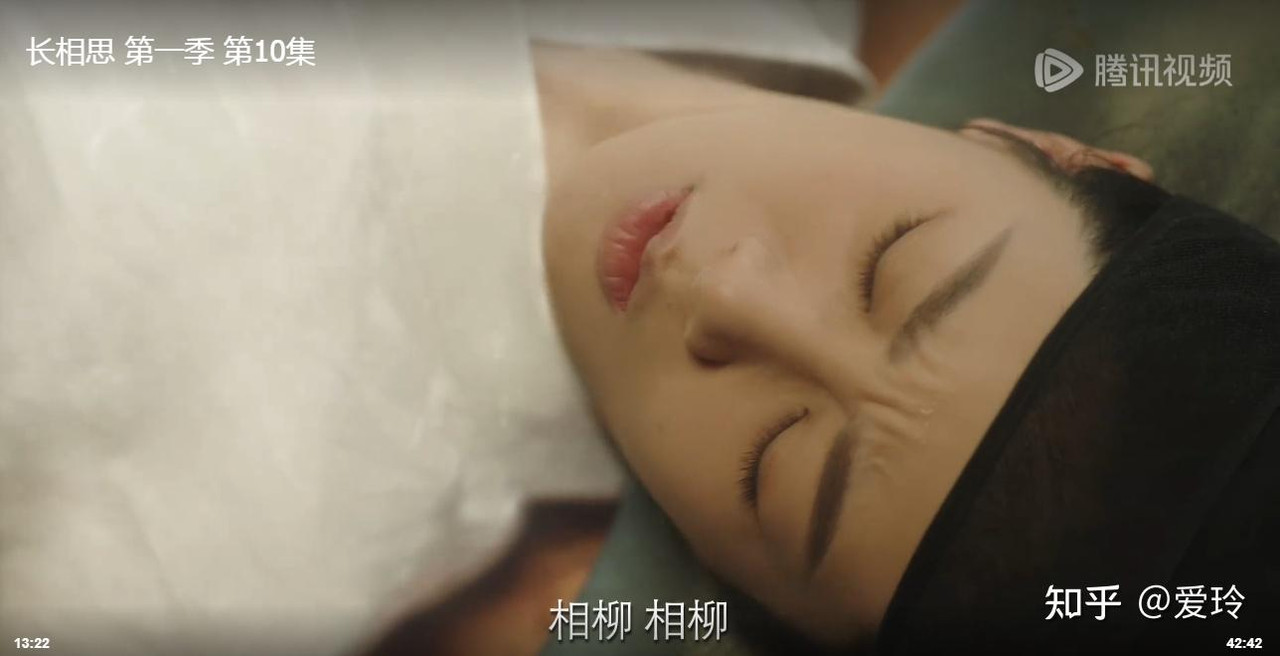
He had already entered the dream before the poison ritual.
In the end, Daiyu died on the day of Baoyu and Baochai’s grand wedding.
Xiangliu also died on the day of Xiaoyao and Tushan Jing’s grand wedding. However, Fangfeng Bei survived.
Daiyu and Baochai correspond to Xiangliu and Jing.
Nowadays, more and more analyses of Dream of the Red Chamber suggest that Lin Daiyu and Xue Baochai are “two beauties at the same time,” two sides of the same coin, equally matched in character, appearance, and talent. When Cao Xueqin created these characters, he designed them to complement each other. Whether in the judgment verses or the songs, the two are always placed together. As a result, the two have long been elegantly referred to as “Chai–Dai as One” (钗黛合一).
So why are the two called Chai–Dai as One? I believe it is primarily due to the complementarity in their lives. Both Chai and Dai have their own flaws; together, they form perfection.
Commentary by Zhiyan Zhai in Chapter 42:
“Gengchen: Although Chai and Yu each have a name, they are in fact one person—this is the work of a fantasy pen. By the time the book reaches Chapter 38, more than one-third has passed, so this chapter depicts the two as united into one. Just observe the words of Baochai after Daiyu’s passing, and you will know that my statement is not mistaken.”
The lives of Chai and Dai are, in fact, complementary. Lin Daiyu lived through the first half of a person’s life, experiencing love; her youth was vibrant, meaningful, and full of energy. Xue Baochai, on the other hand, appears already in middle age—steady, graceful, mature, like an adult woman. Her life represents the continuation of Lin Daiyu’s. Having lost the sharpness of youth and the age of love, marriage becomes a calm, everyday life. Lacking the passion of love, she embodies the delicacy of married life.
In her previous life, Lin Daiyu owed the Divine Attendant Shenying the nurturing of affection. In this life, she only comes to repay that fleeting love; after repaying the favor, she passes away. Meanwhile, the Divine Attendant Shenying’s experiences are not yet complete. Xue Baochai, as Lin Daiyu’s successor, renews the bond with Jia Baoyu, enacting the life of someone entering marriage. According to the notion of Chai–Dai as One, Lin Daiyu is Xue Baochai, and Xue Baochai is Lin Daiyu. They represent two stages of Jia Baoyu’s experience of a single love. Once the love is fulfilled, the Divine Attendant Shenying’s merit is complete, and Jia Baoyu departs from the world.
It can also be understood this way: meanness and nobility, evil and goodness, hatred and love can coexist within the same heart. If you can understand this, then you realize that Chai and Dai are actually the same person. This reality is rather harsh—there is no perfect human. Therefore, in the mythological story, Tonghua, unwilling to accept this, created a middle character who gathers the strengths of both—Ye Shiqi. Ye Shiqi was initially fake (placed in this false world by Tushan Jing). That is why Xiaoliu said, “There is no Ye Shiqi in this world at all.” But when Tushan Zhen was born, a true king appeared in the false world. Then, in the false world, the real Ye Shiqi was also placed; Liu-Shiqi is this real Ye Shiqi, and only on the willow tree are there leaves.
A few days ago, I wrote a piece of tea: Tushan Jing is like a teapot on the surface, inside hiding Xiangliu and Xiaoyao. Xiangliu is the tea, Xiaoyao is the water, and Tushan Jing is the tea fox (the pot).
Here are a few examples of how the two are similar, merged, and connected:
- For instance, in the final letter between Xiangliu and Tushan Jing, Xiangliu is wearing blue. Blue is usually the color Tushan Jing wears. However, blue also represents the sea and the sky, which should be Xiangliu’s exclusive color, yet Tushan Jing happens to like wearing blue. Meanwhile, under Tushan Jing’s outfit, he is wearing Xiangliu’s hidden colors of black and white. For those unclear about this, you can refer to my letter interpretation.
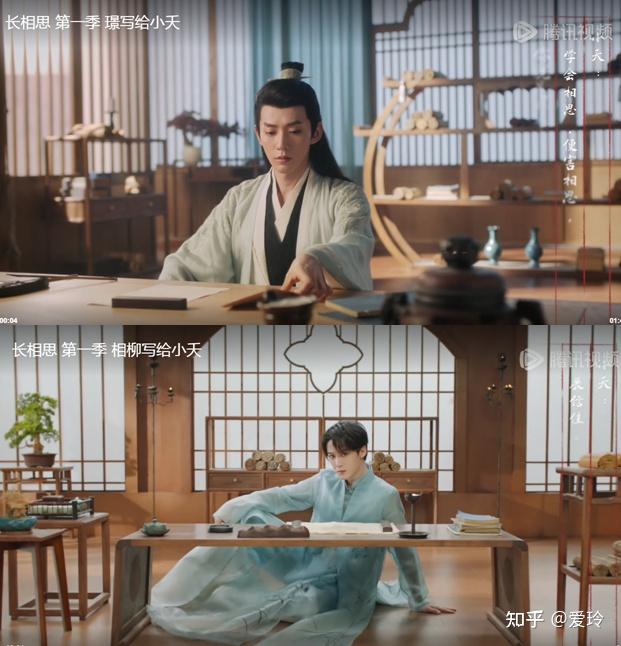
The wooden wind chime is Xiangliu’s exclusive item, yet the crystal wind chime has become Tushan Jing’s exclusive item. Both characters have wind chimes. The main point is that the crystal comes from the extreme north; Xiangliu spent over a hundred years there and mastered ice magic. Fangfeng Bei also went to the extreme north, carrying thousands of crystals back home. The crystals should all be related to Xiangliu. Yet every time, it is Tushan Jing who appears holding the crystals. In Tushan Jing’s residence, the Yu Mansion, crystal wind chimes are hung. He also gave Xiaoyao a string of crystal wind chimes to hang in the Huichun Hall. To save Xuan, Xiaoyao even went to Tushan Jing to request two more strings of crystal wind chimes.
When Xiaoyao was seriously injured, Xiangliu first treated her. Later, when Xiangliu ran out of medicine, Tushan Jing took over and carefully treated her. This highlights the continuity between the two.
Xiaoyao often speaks to Jing the words she wants to say to Xiangliu, even treating Jing as a substitute for Liu. (It should be noted that Xiaoyao and Xiangliu are connected through the Gu lover)
Also, regarding the final ending, it is said that Liu saved Jing so he could accompany Xiaoyao, which is another form of continuity.
At the very end, in the letter, Ye Shiqi goes to the pharmacy where Xiaoyao is, and Xiangliu’s wooden wind chime appears. This should also indicate that at this point, Ye Shiqi is Xiangliu as well.
Xiangliu has nine heads, and Tushan Jing has nine tails—one at the beginning, one at the end. In the end, a few of Xiangliu’s heads are gone, and several of Tushan Jing’s tails are broken. However, Tushan Jing does not live long; Xiangliu is resurrected under the Ye Shiqi disguise. This is where Chang Xiang Si differs from Dream of the Red Chamber in the ending
Actually, there are many more examples that I won’t list one by one, and everyone is welcome to leave their thoughts in the comments.
Therefore, I think in the end, the “Chuanzi” (串子) is two mouths joined together, which in fact strings the two Ye Shiqi characters together. At first, Chuanzi was just freeloading ( taking advantage without giving back) and even changed his mind at times—that is the nature of Jing Shiqi. Later, it turned into genuine affection, becoming Liu Shiqi. In the end, Chuanzi and Sangtian successfully married, and with Sangtian’s descendants flourishing, it represents the merging of the two. Sangtian survives until the very end.
Key points: The Ye Shiqi who returned from Yushan is Xiangliu after the great battle, having let go of everything.
(1) Ye Shiqi did not originally exist in the world
(2) When Xiao Liu was naming the recovering Tushan Jing, she casually picked a branch of green-leaf medicinal herbs and let Mazi (whose memory is poor, according to the book) count the leaves. Mazi counted sixteen leaves as seventeen, and at that moment, Tushan Jing was named Ye Shiqi. In the drama, the use of sixteen leaves hints that Tushan Jing is not truly Ye Shiqi
(3) During the Merlin massacre, one of the killers (several killers symbolize the protagonists’ fate) is an orphan named Shen Zhong. If you break down the name: Shen (申) represents “leaf,” Zhong (柊) contains “ten,” and the remaining strokes add up to seven, forming the name Ye Shiqi.
Key points: The Zhong tree (柊), also called “Zhongmei” (柊楑), is a medicinal herb and was the branch used to name Ye Shiqi. “Zhongmei” is linked to Zhong Kui (钟馗) and the nine heads—understand? The real Ye Shiqi is the one with nine heads. Fangfeng Bei has 17 strokes, Baozhu has 17 strokes, and Tushan Jing’s character Jing (璟) has 16 strokes. In the episode about the wedding snatching, Xiangliu mocks Tushan Jing, saying he is “sometimes six, sometimes seven,” and “if Xiao Yao cared about family background, there would never have been any Ye Shiqi in the world.” Clearly, the one who truly understands the meaning of the name Ye Shiqi is also Xiangliu. Shen Zhong’s fate was to see how many kinds of torture he could endure—he did not die.
In the book, Xiao Yao asks Tushan Jing, who has returned from Yushan: “Jing, is that you?” He replies, “I am Wen Xiao Liu’s Ye Shiqi.” The phrase “Wen Xiao Liu’s Ye Shiqi” is only used twice in the book; the first time comes from Xiangliu at the bottom of the sea.

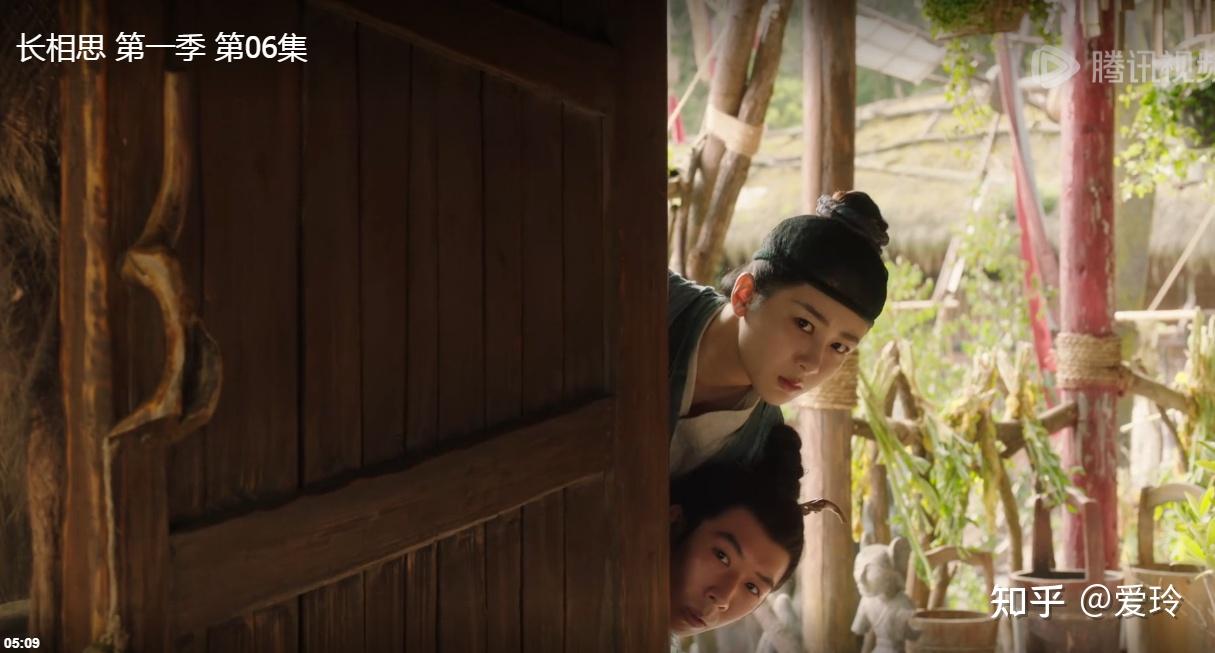
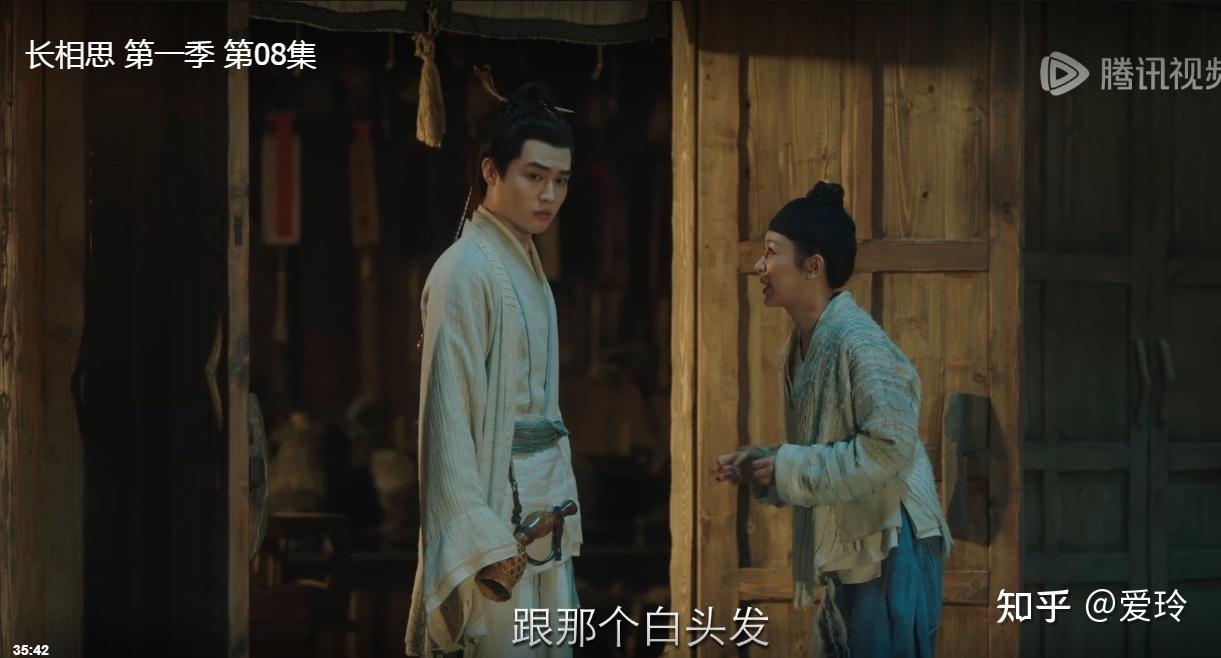
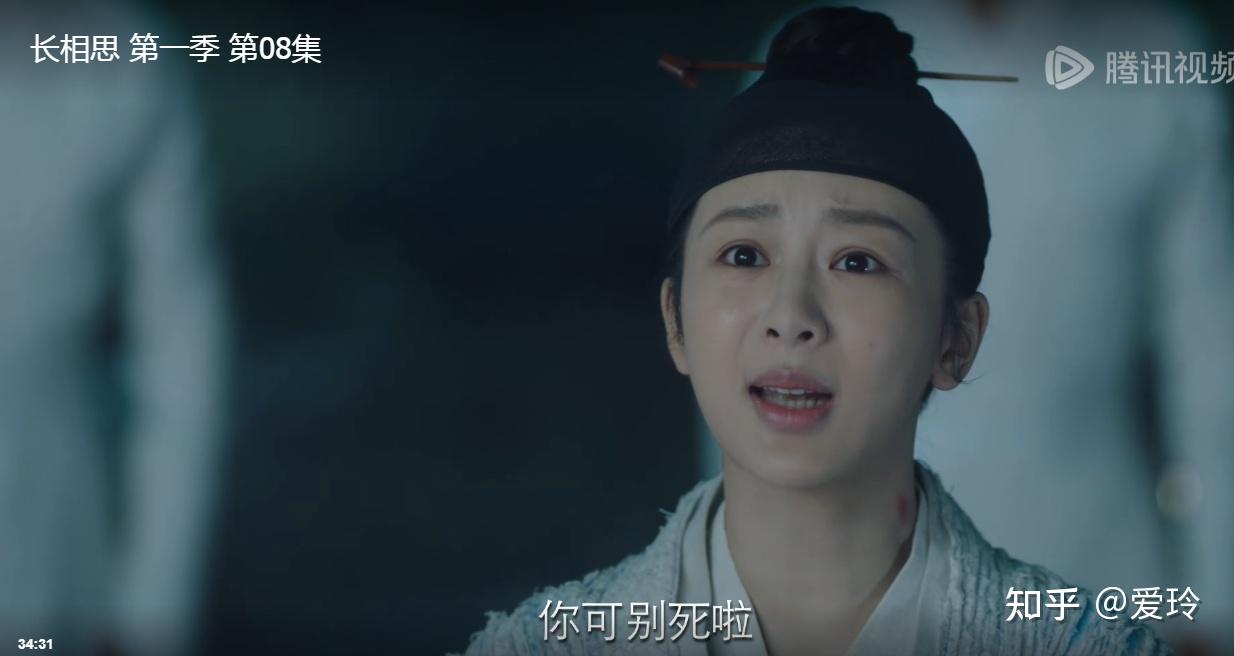
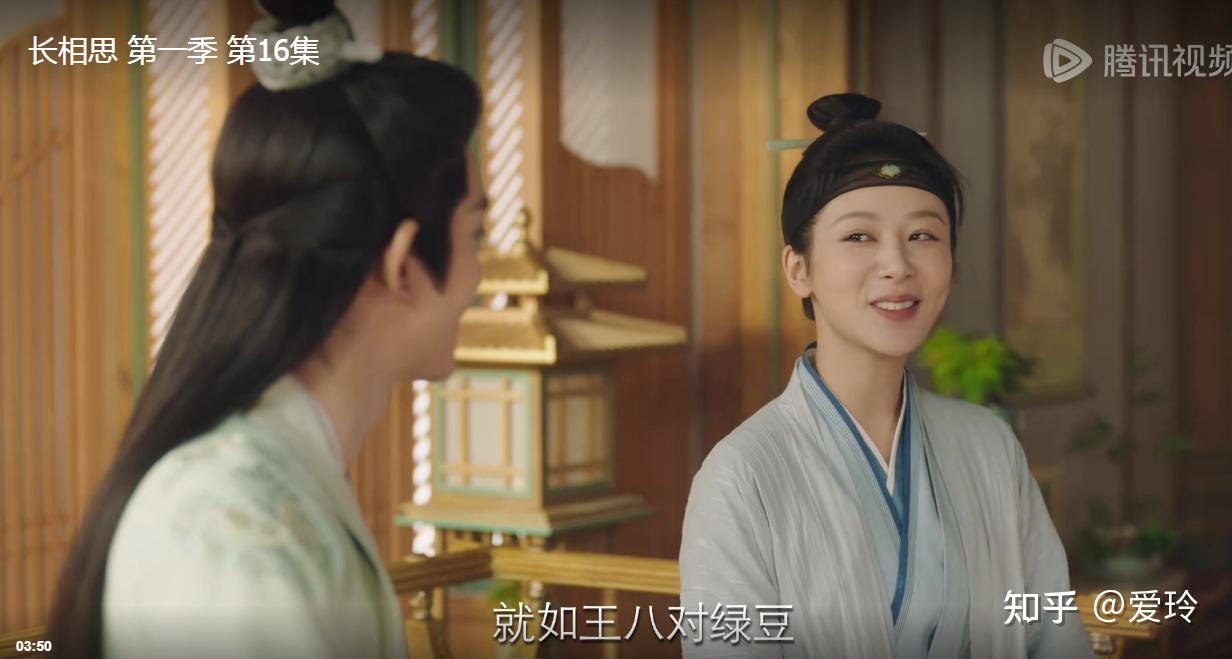
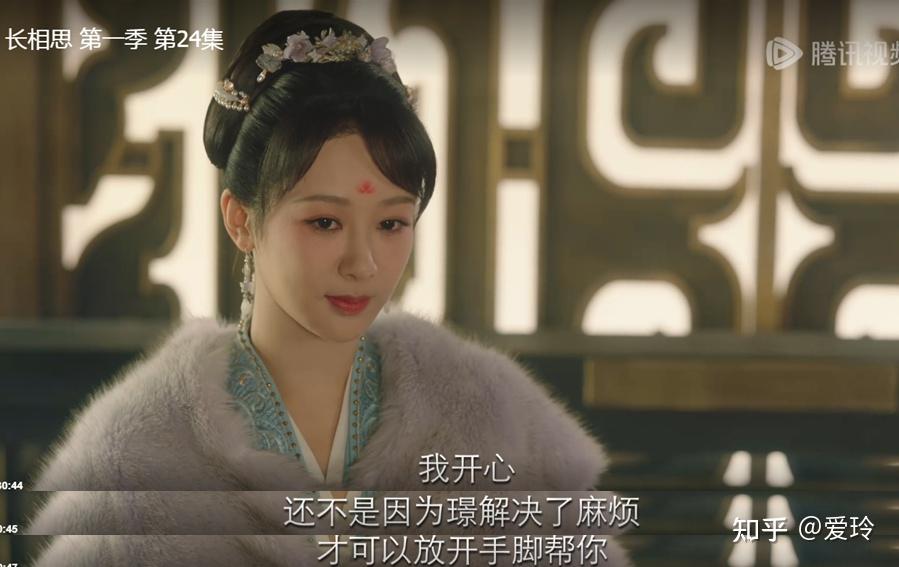
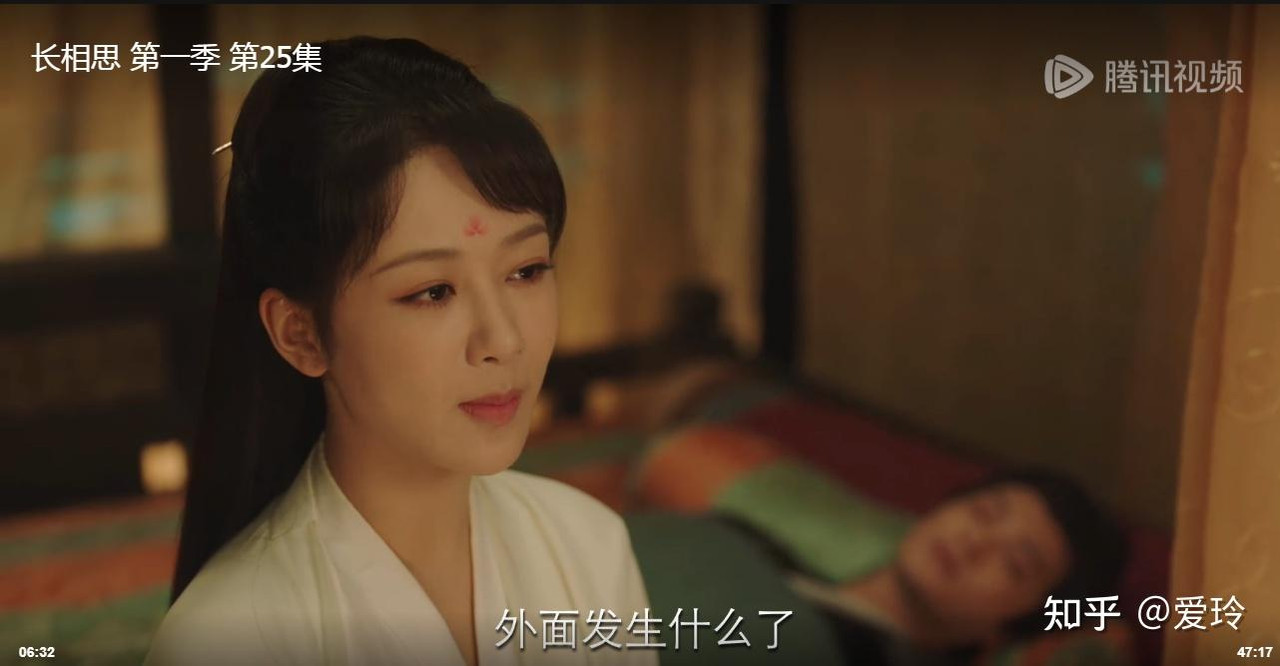
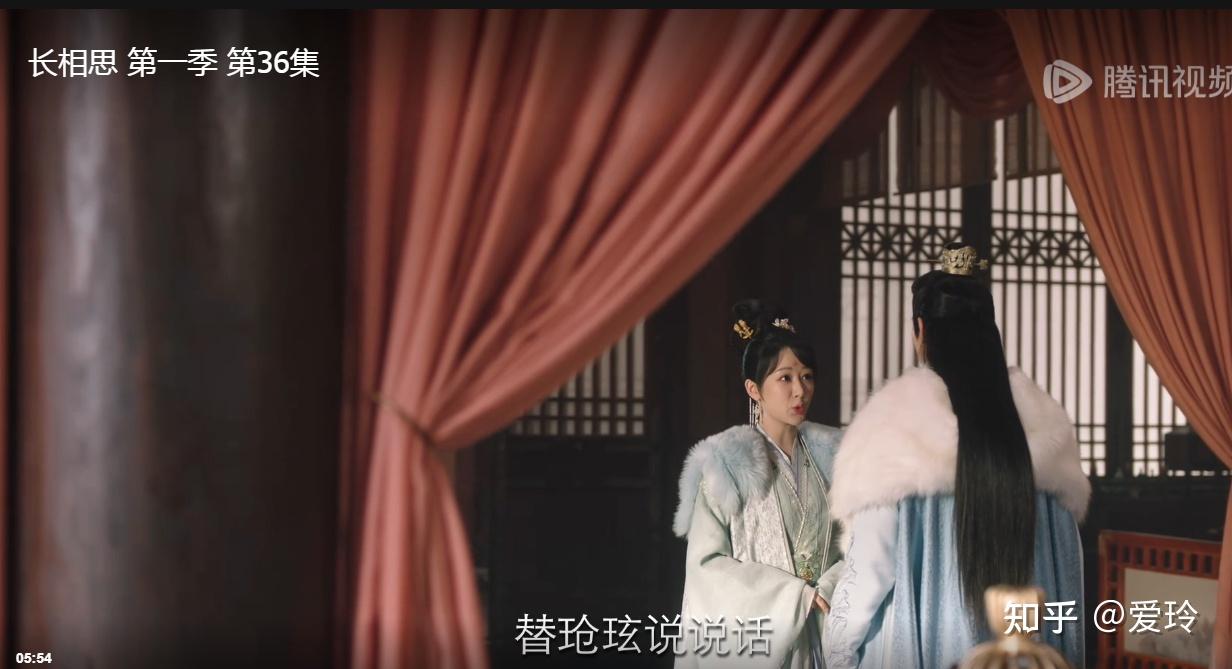
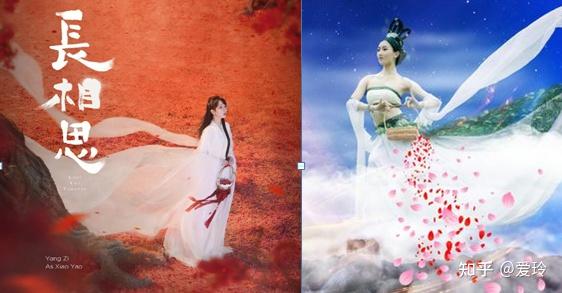
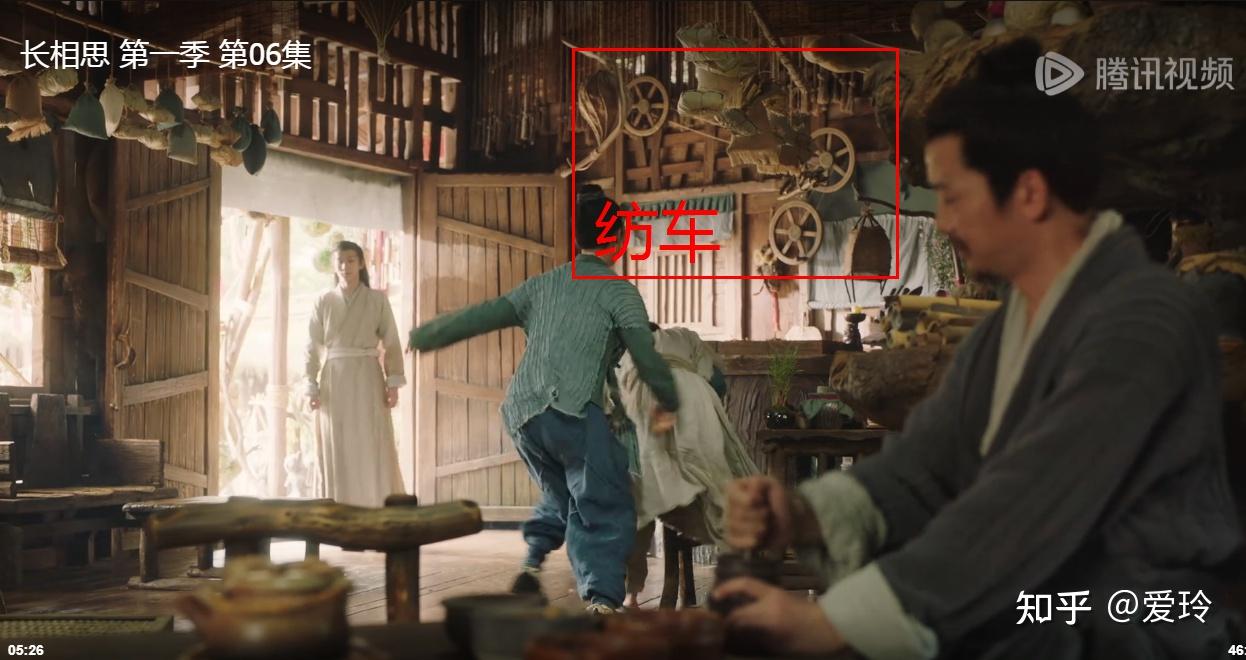
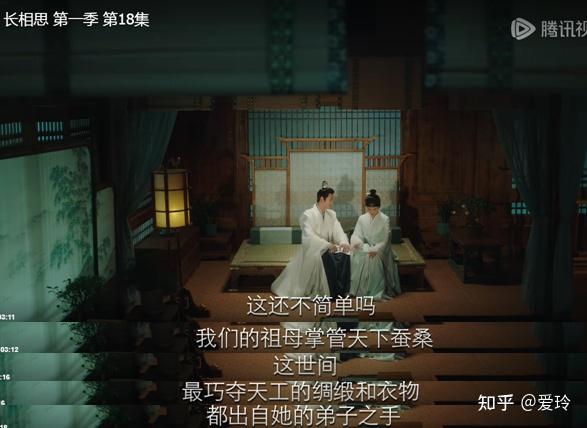
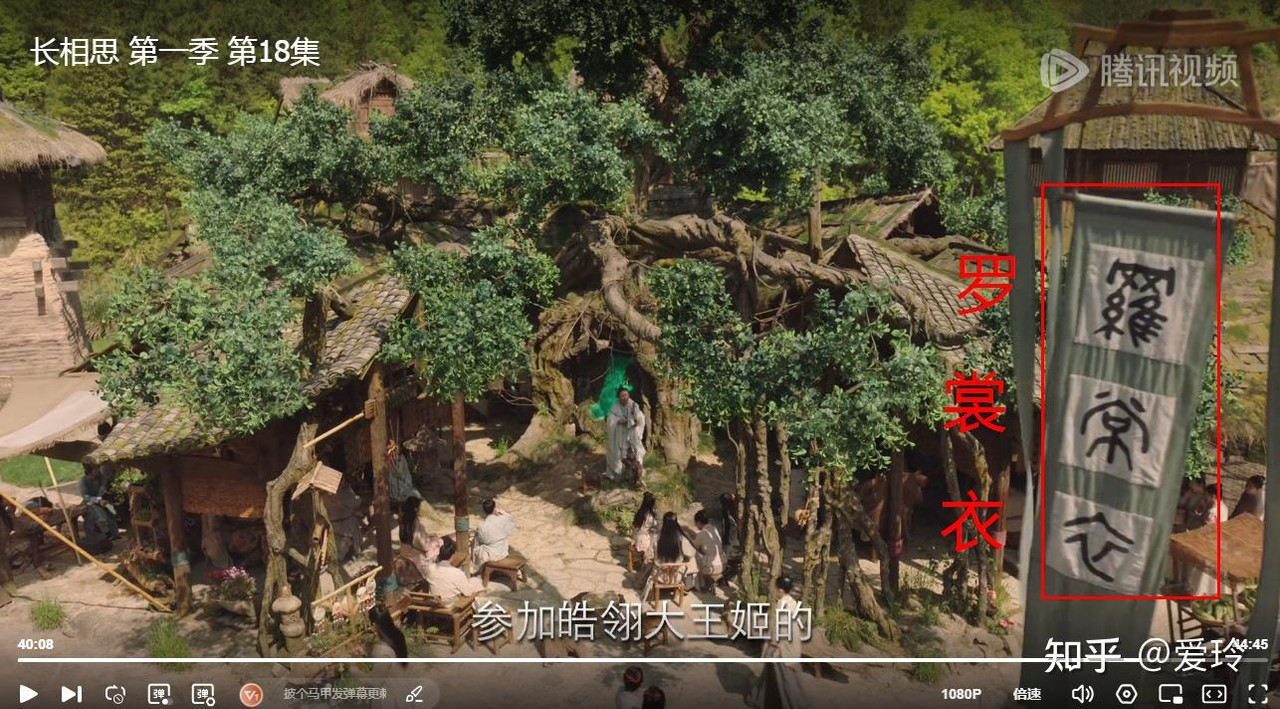
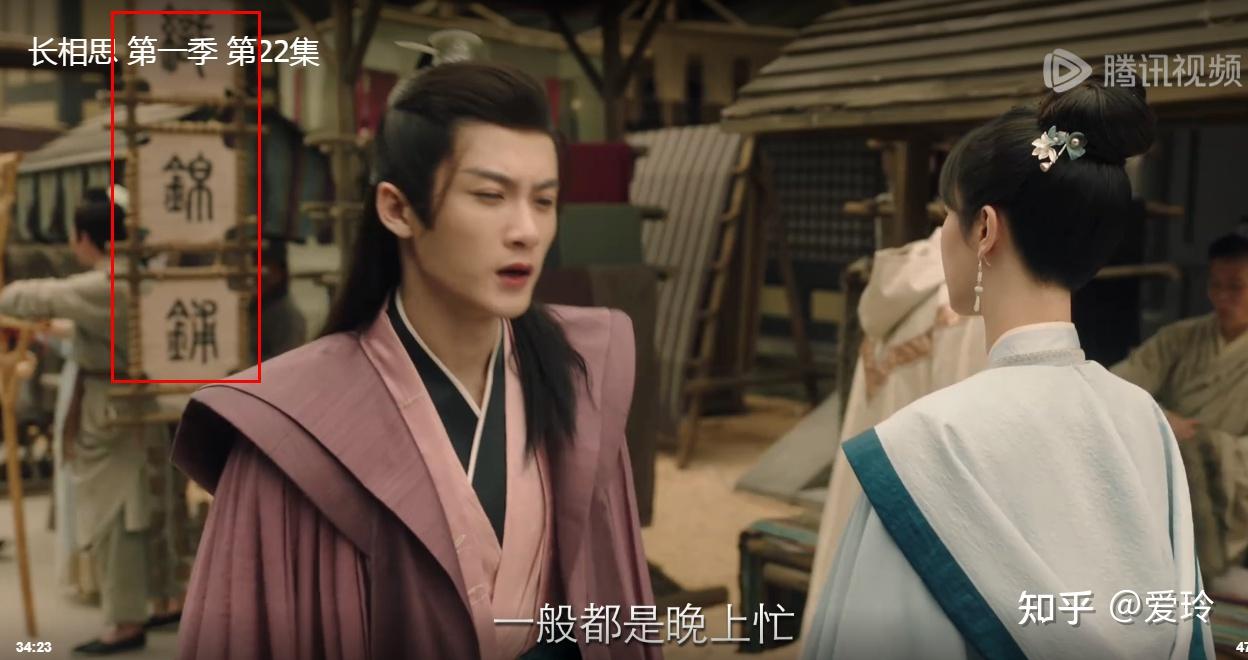
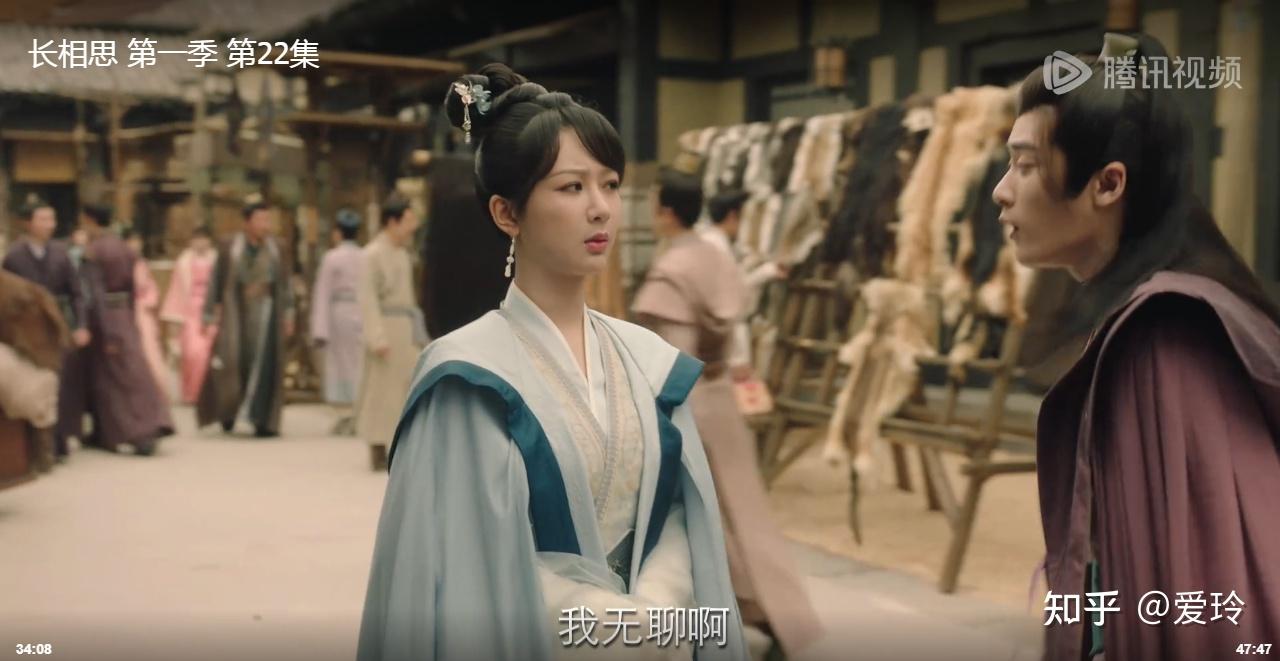
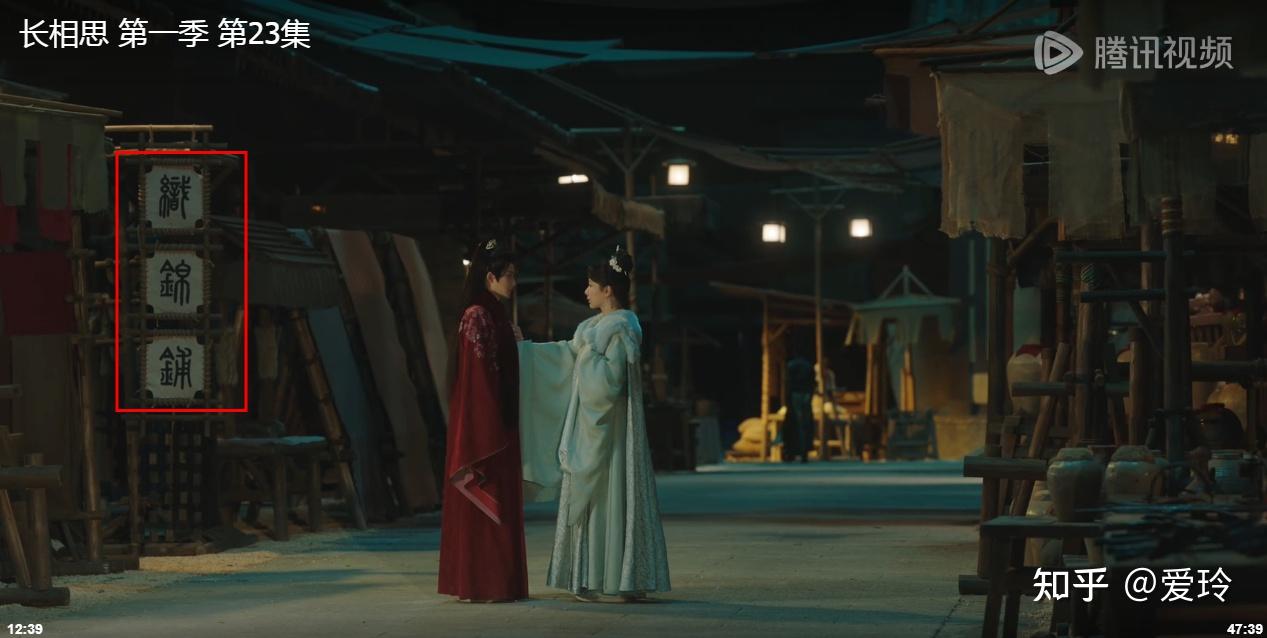
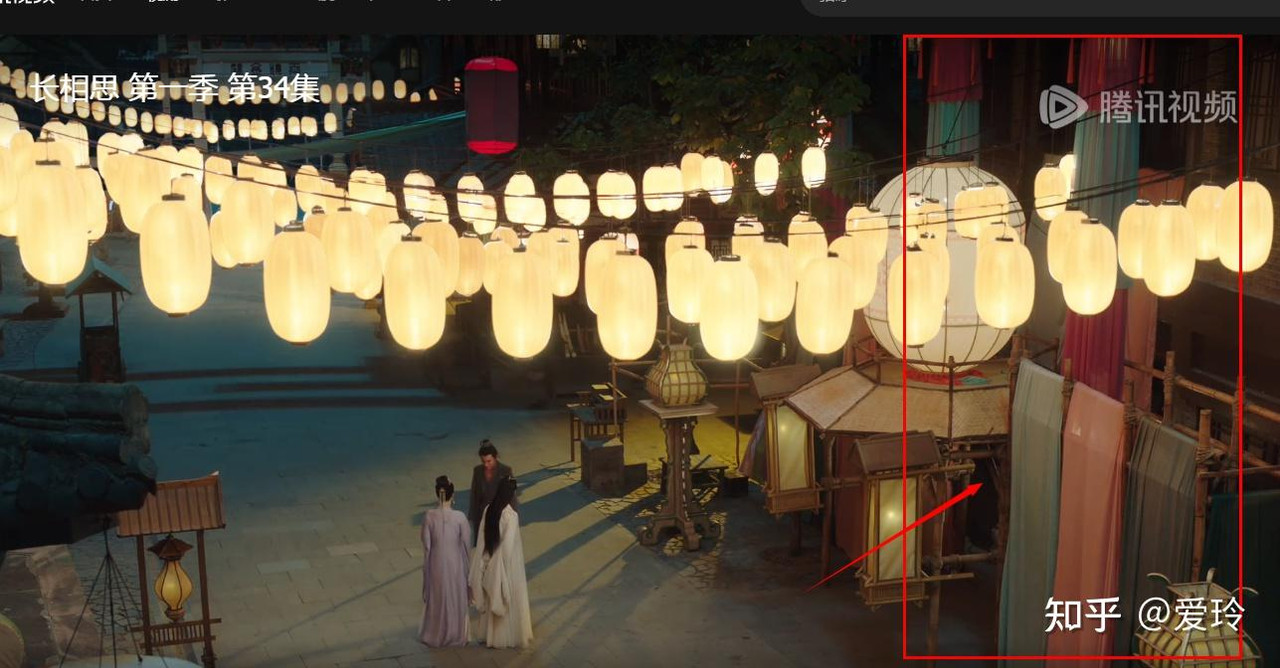
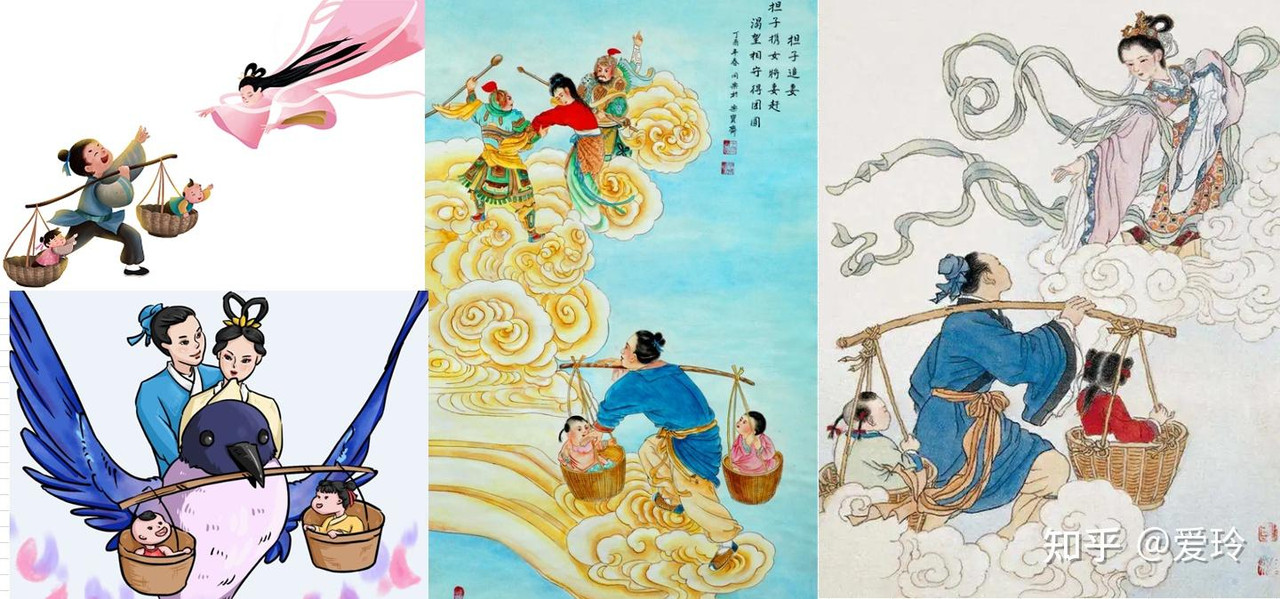
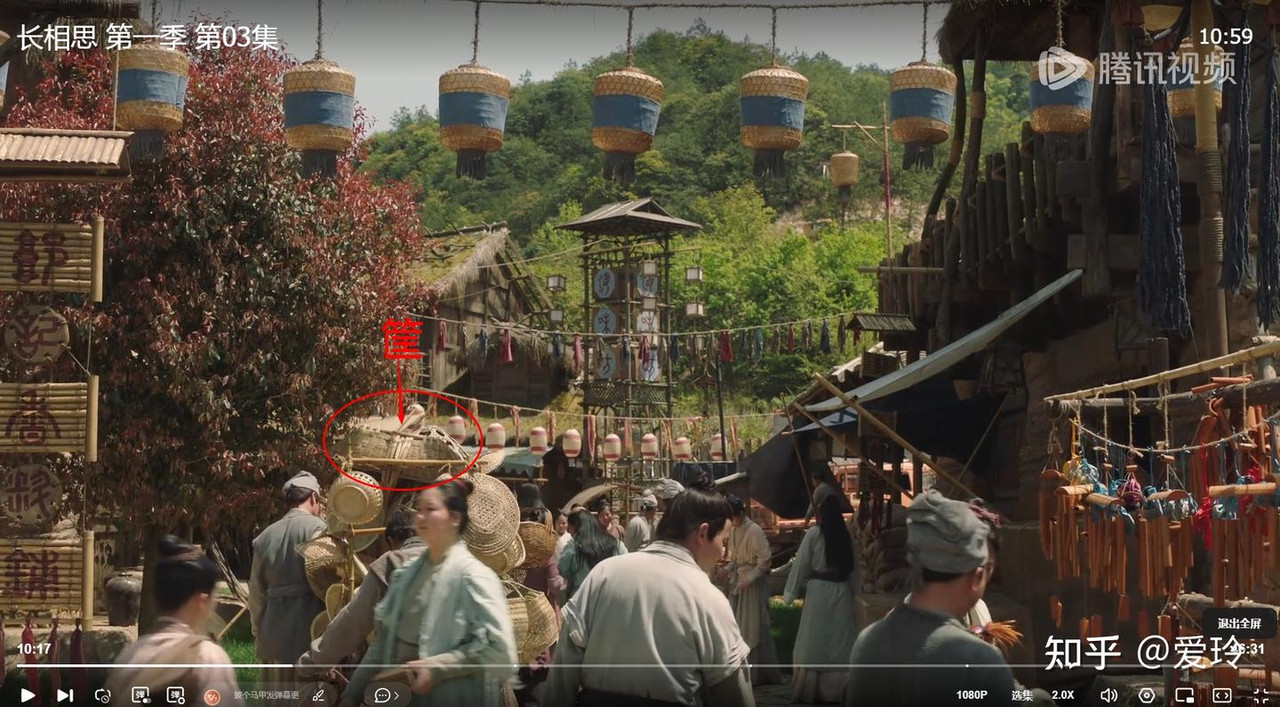
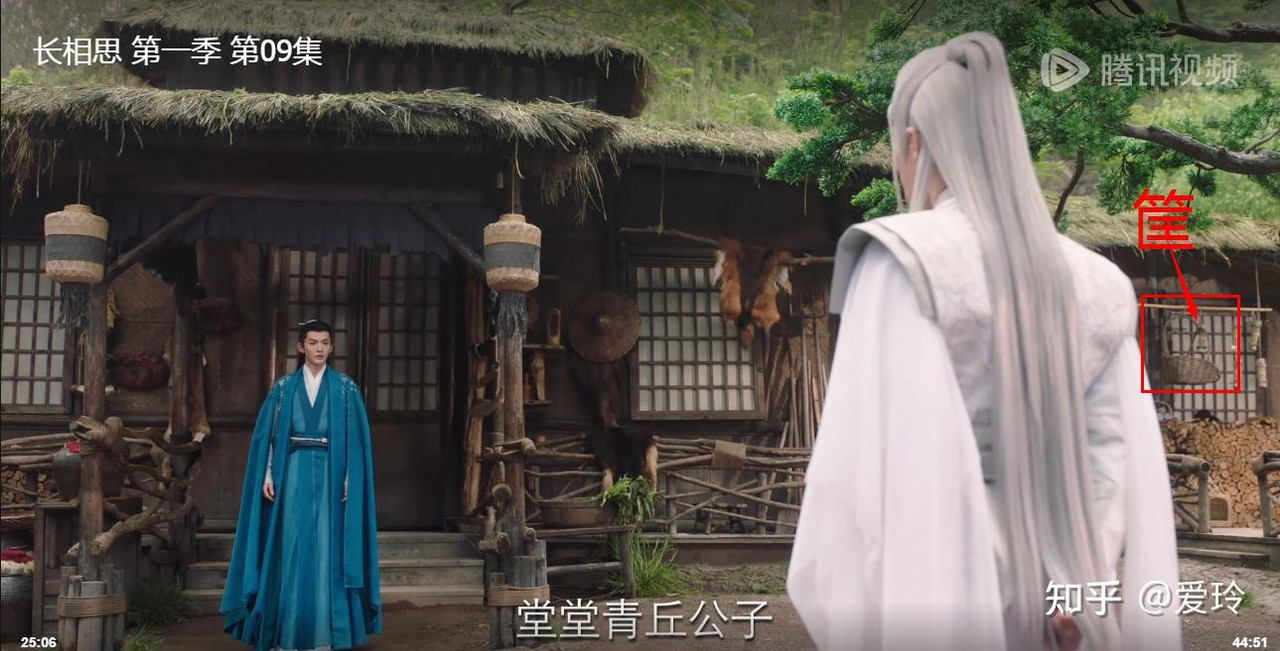
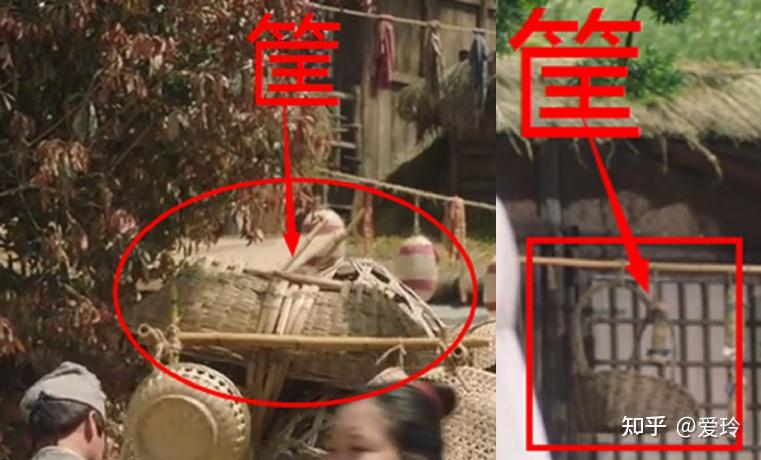
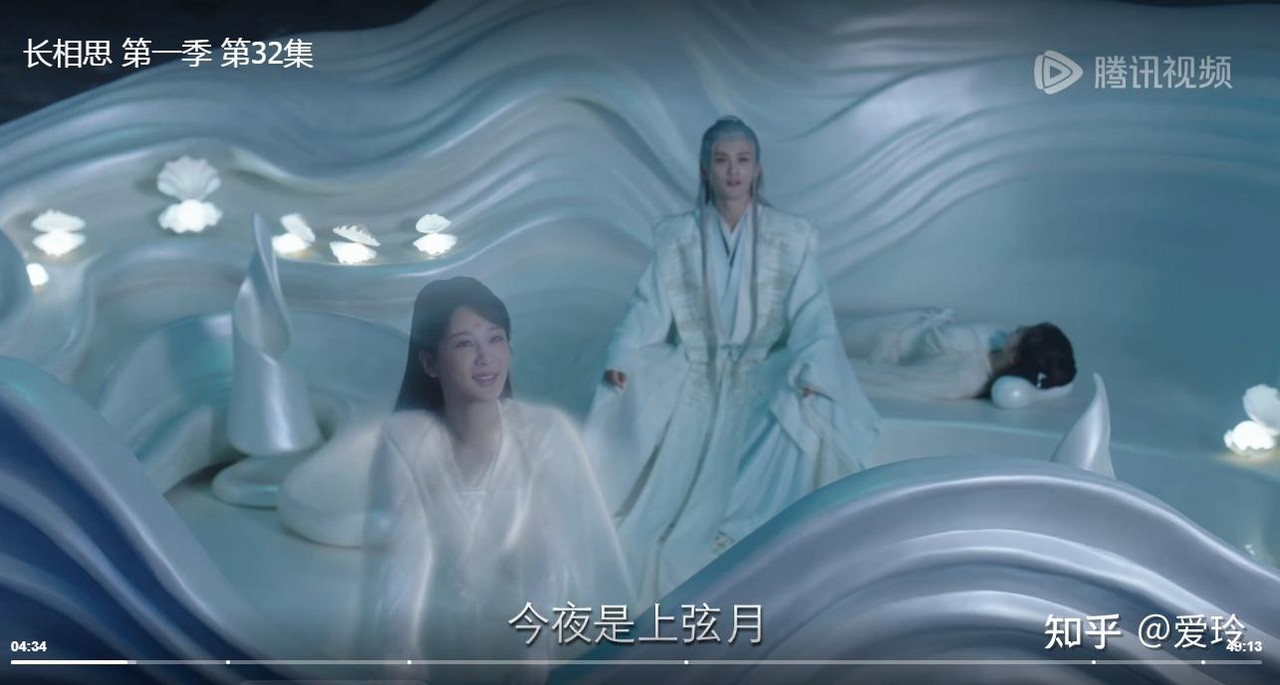
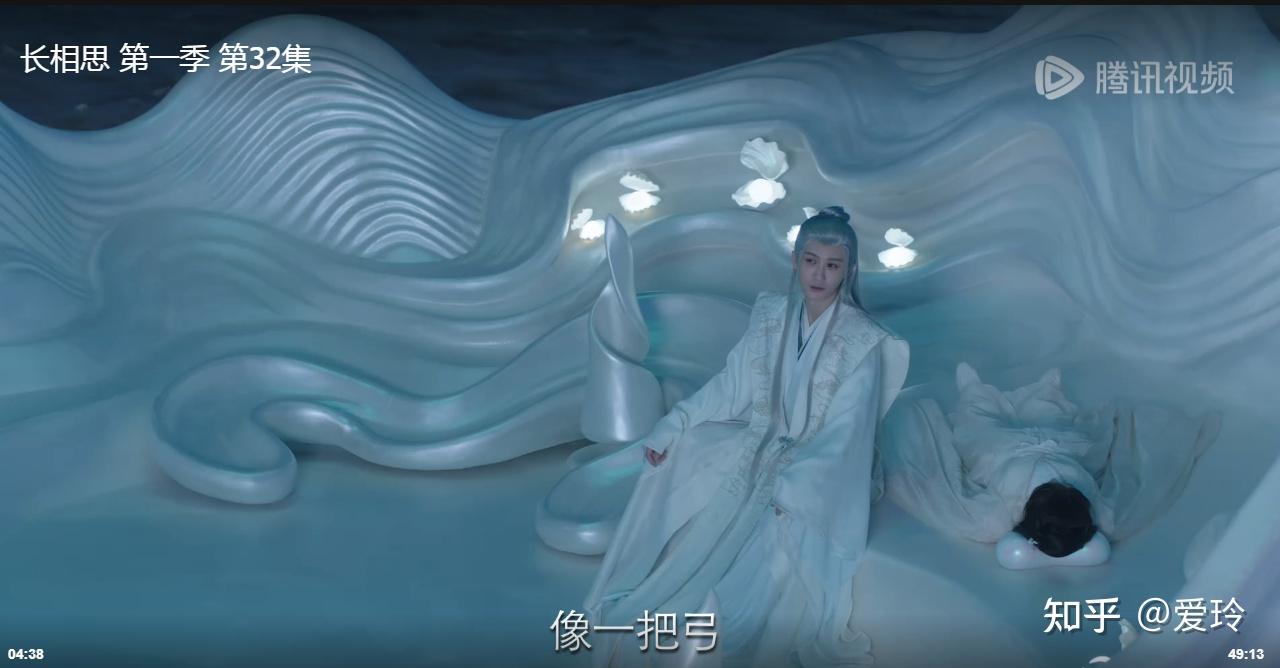

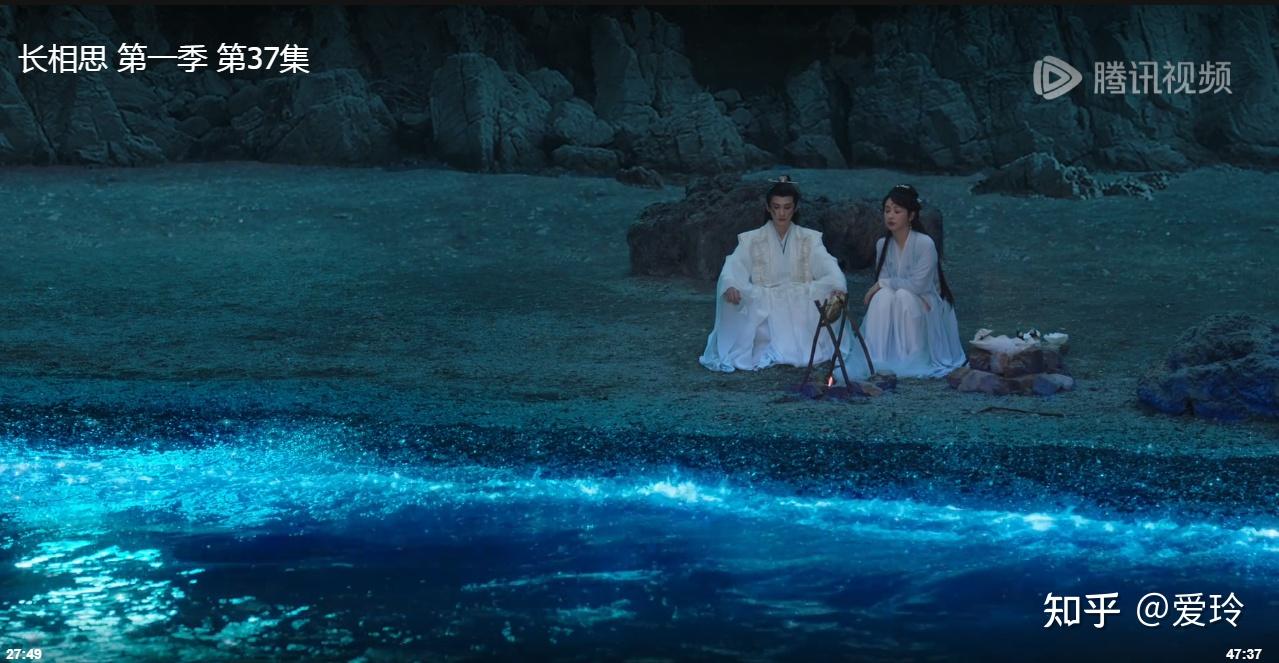
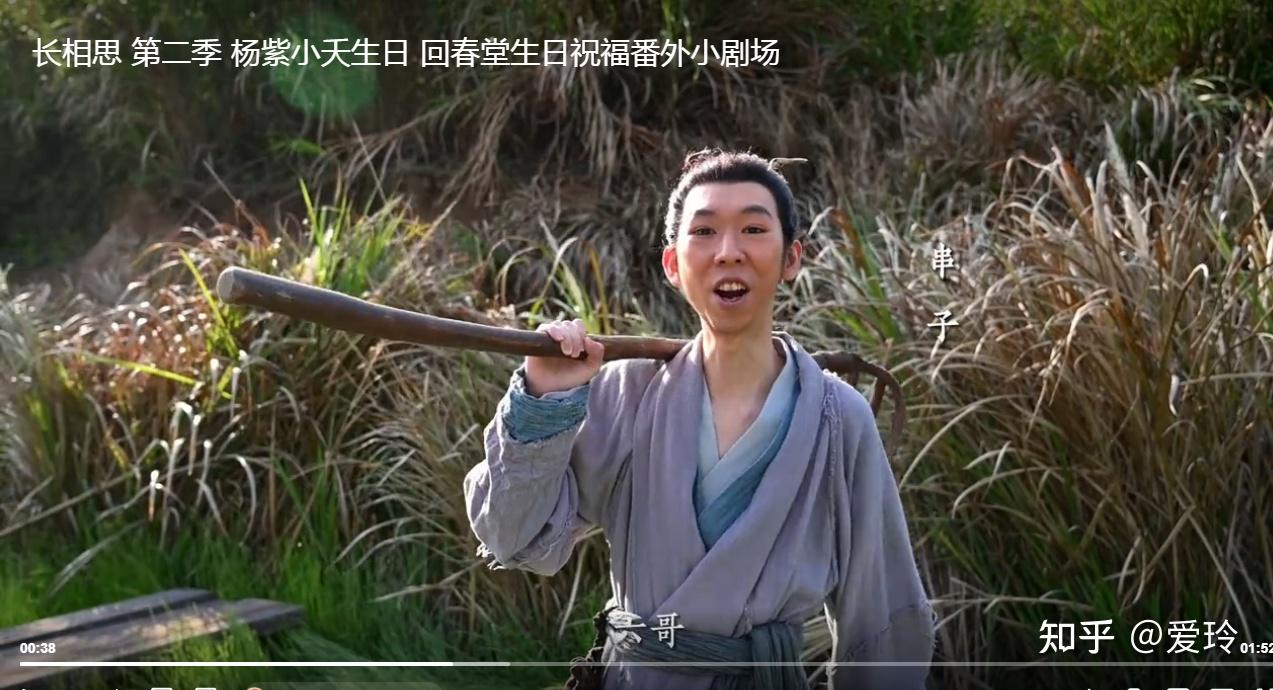
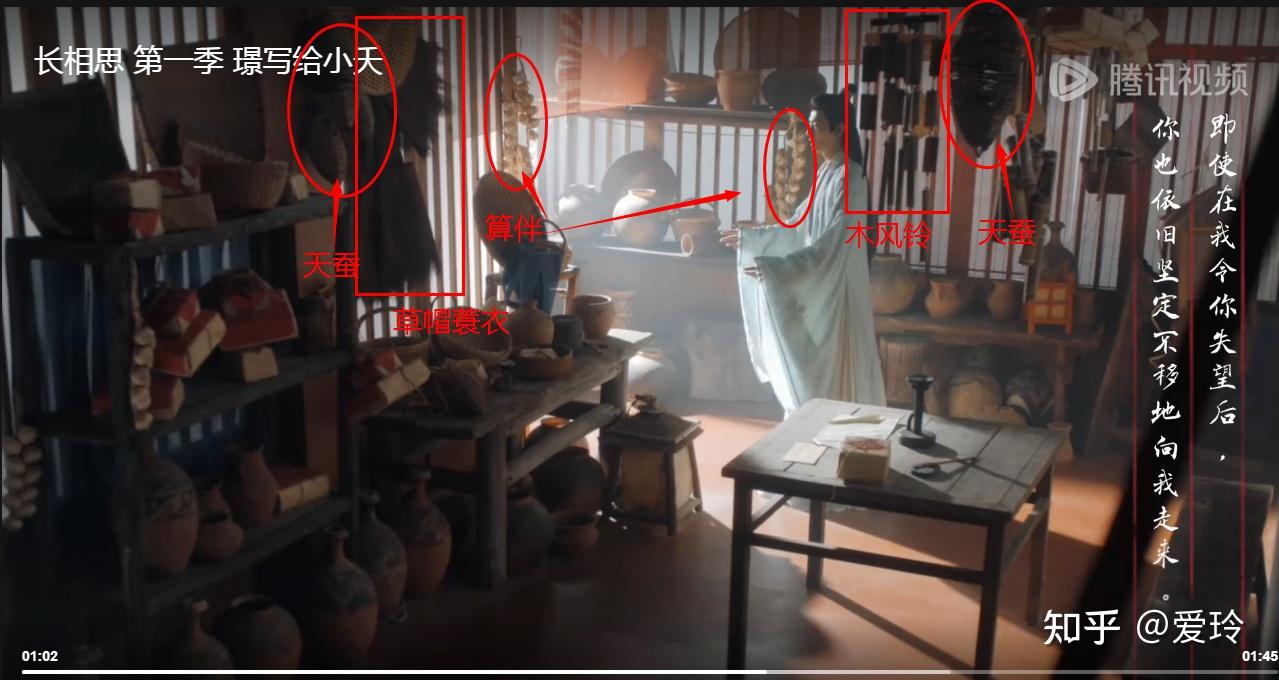
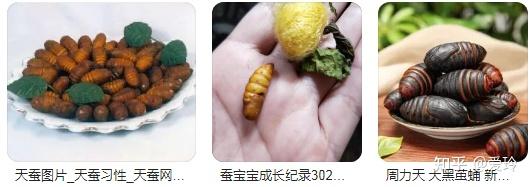
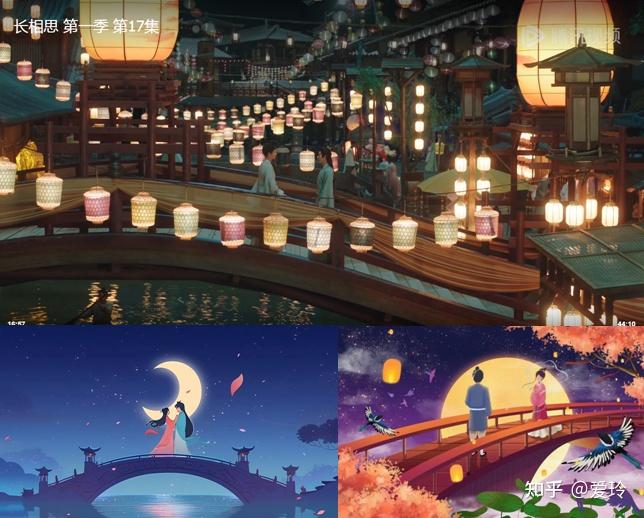



 Baoyu, who mingles in circles of the opposite sex, is partially hidden by a blue umbrella, representing that in his heart he still cares for Xiangliu (Daiyu).
Baoyu, who mingles in circles of the opposite sex, is partially hidden by a blue umbrella, representing that in his heart he still cares for Xiangliu (Daiyu). Baoyu loves eating rouge
Baoyu loves eating rouge Whenever a straw raincoat and straw hat appear, it signifies Baoyu’s character traits are highlighted.(Note:he is Liu-Shiqi)
Whenever a straw raincoat and straw hat appear, it signifies Baoyu’s character traits are highlighted.(Note:he is Liu-Shiqi) Baoyu carried a lantern to see Cangxuan, formerly Daiyu, later Baochai, for a farewell.
Baoyu carried a lantern to see Cangxuan, formerly Daiyu, later Baochai, for a farewell.
 On their second meeting, planning to watch Fangfeng Bei practice archery, Baoyu’s character traits are highlighted
On their second meeting, planning to watch Fangfeng Bei practice archery, Baoyu’s character traits are highlighted The straw raincoat and straw hat at the entrance of Xiangliu’s private residence in Chenrong Mountain also indicate that this is Baoyu’s home. The shared items in the Xiaoliu household serve as proof that the two are married
The straw raincoat and straw hat at the entrance of Xiangliu’s private residence in Chenrong Mountain also indicate that this is Baoyu’s home. The shared items in the Xiaoliu household serve as proof that the two are married The spirit stone in Qing Shui Town is narrating the celebration of Da Wang ji, with Xiangliu eavesdropping. A set of Xiaoyao’s exclusive straw raincoat and straw hat is hanging here, which also signifies that Xiaoliu has become Baoyu and is going to mingle in the women’s circles.
The spirit stone in Qing Shui Town is narrating the celebration of Da Wang ji, with Xiangliu eavesdropping. A set of Xiaoyao’s exclusive straw raincoat and straw hat is hanging here, which also signifies that Xiaoliu has become Baoyu and is going to mingle in the women’s circles. Here is the scene in episode 17 of Baoyu leaving Daiyu, shown from behind. Xiaoyao has turned back into Baoyu, which is actually also the signature of Wan Baode in episode 27, only showing the character ‘Bao’
Here is the scene in episode 17 of Baoyu leaving Daiyu, shown from behind. Xiaoyao has turned back into Baoyu, which is actually also the signature of Wan Baode in episode 27, only showing the character ‘Bao’ Wearing jade and a jade hairpin.
Wearing jade and a jade hairpin.


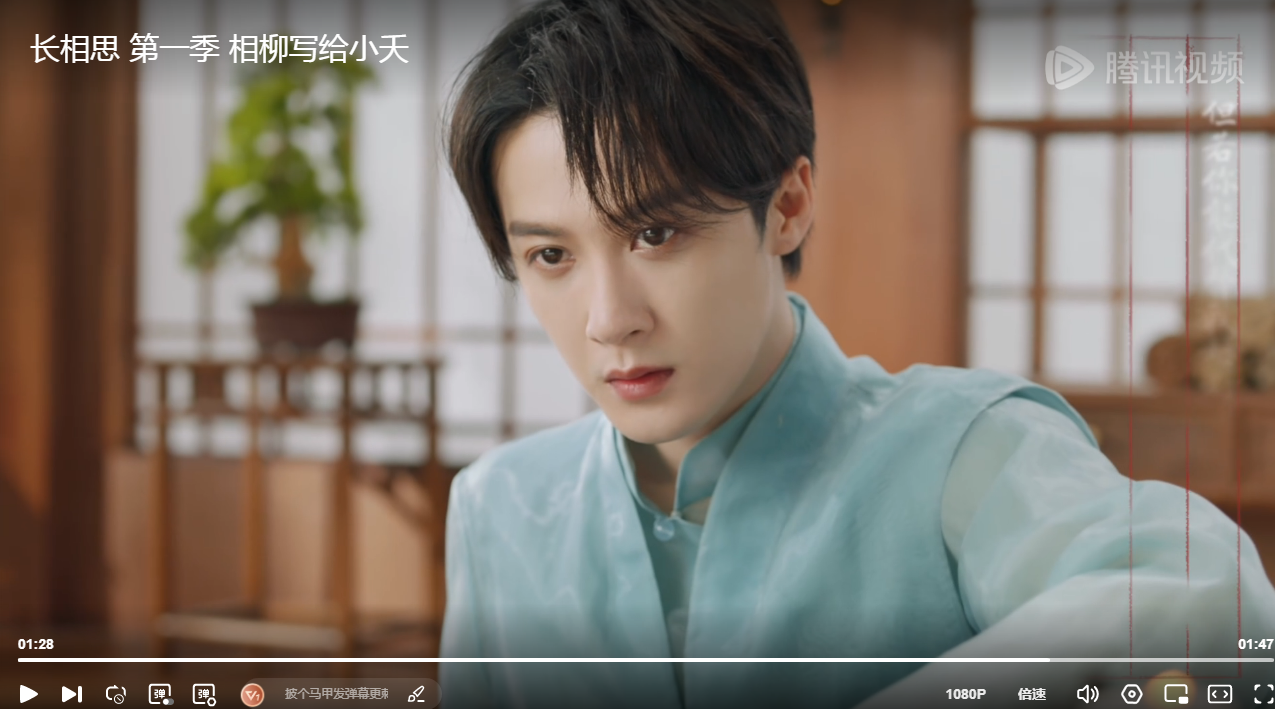
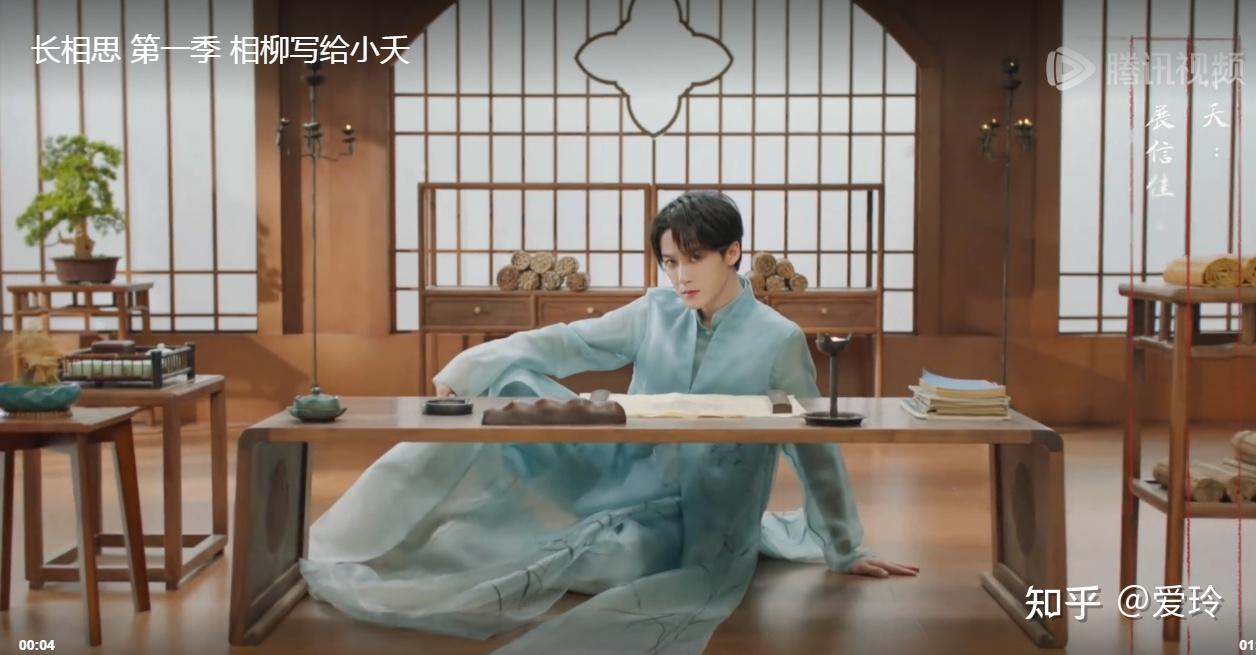
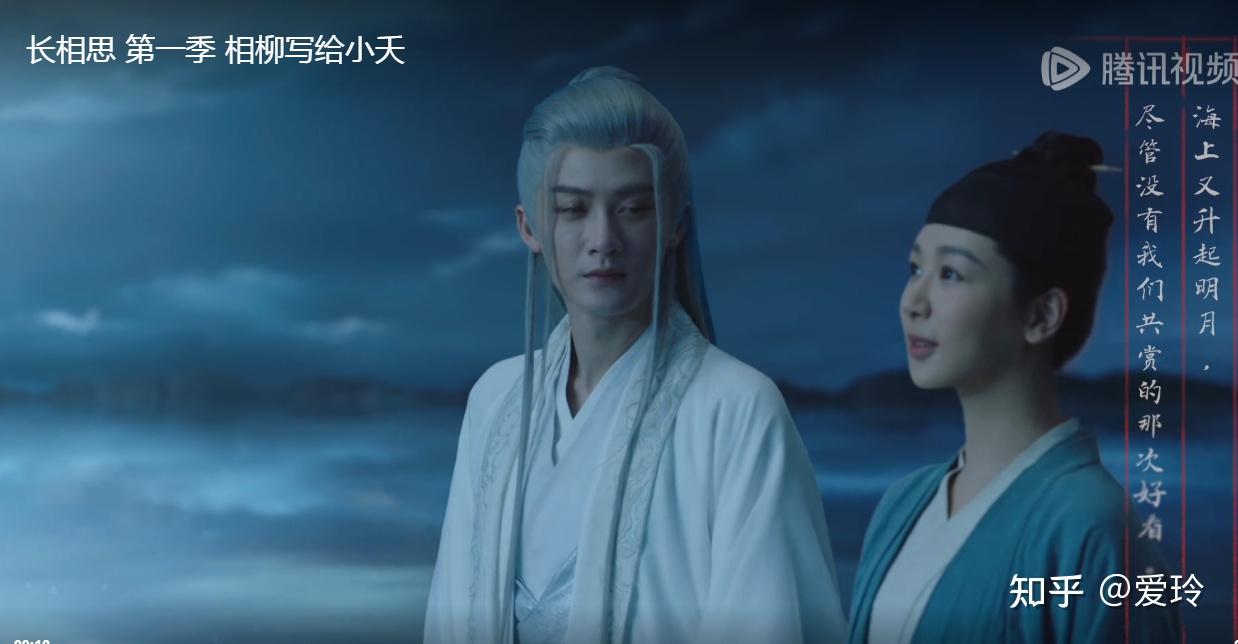
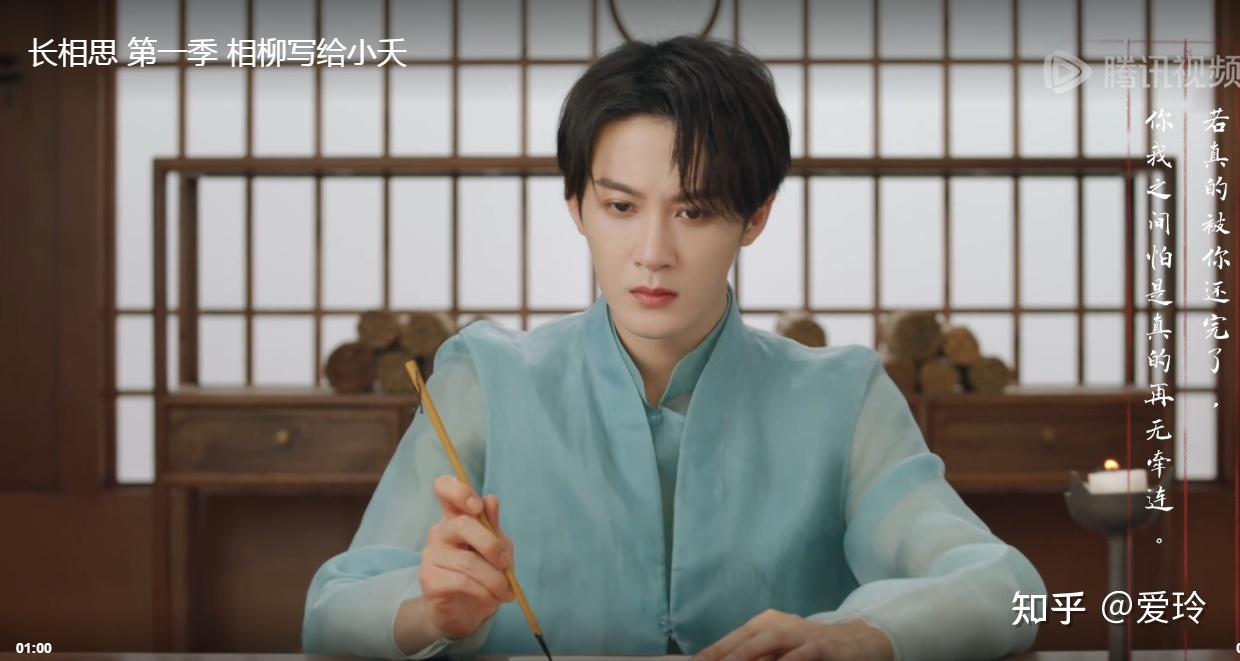
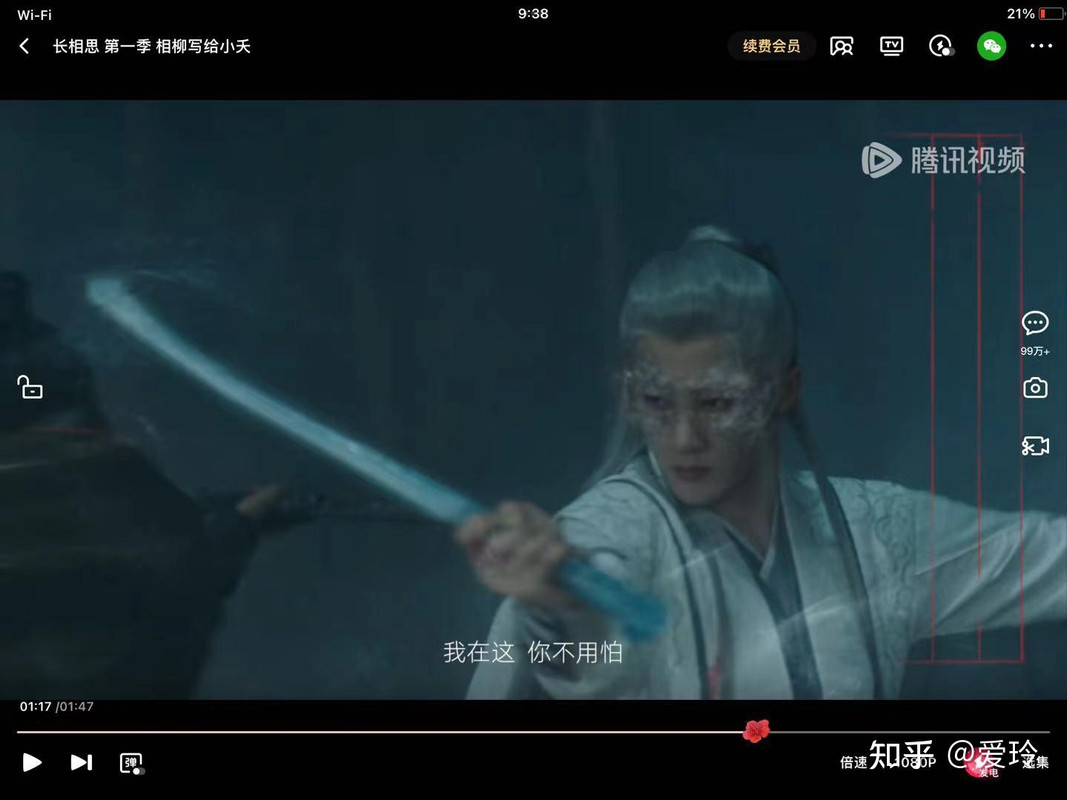
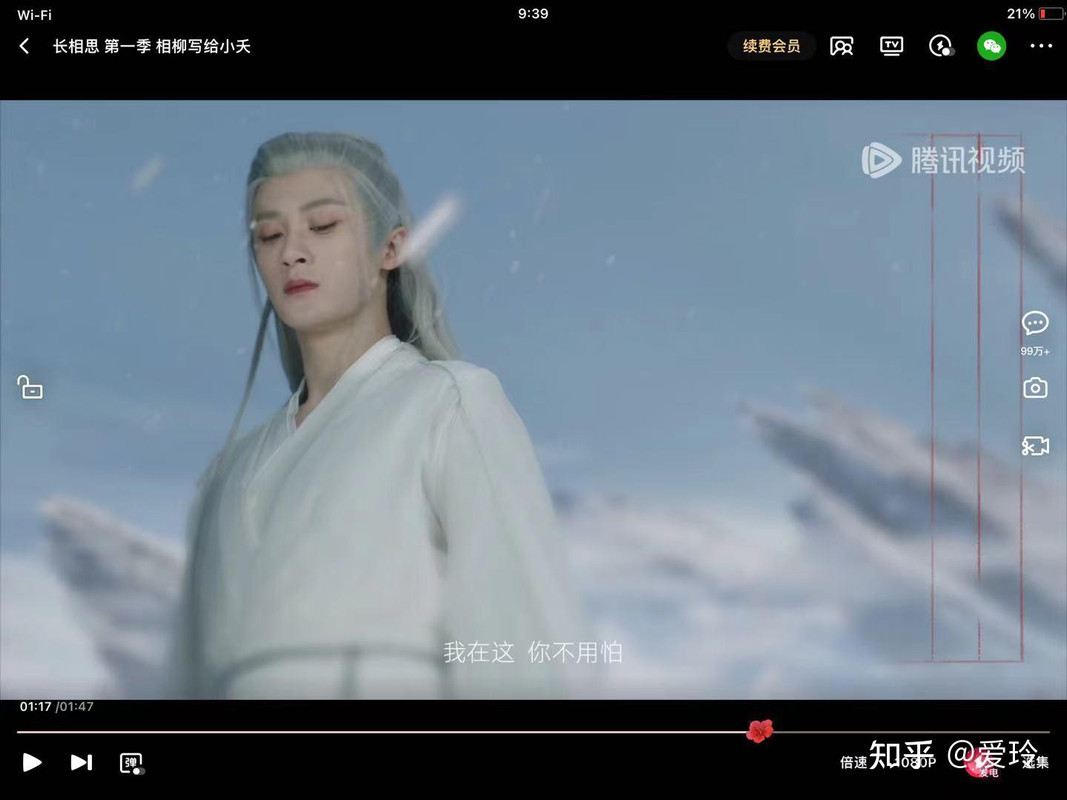
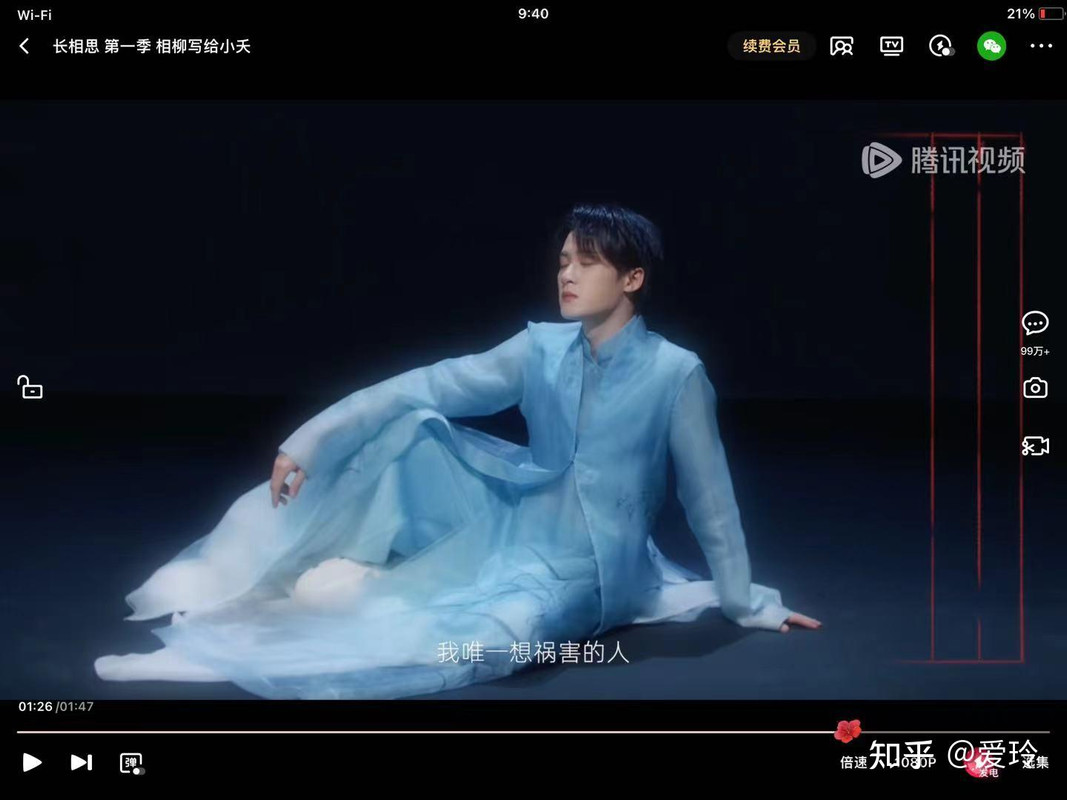
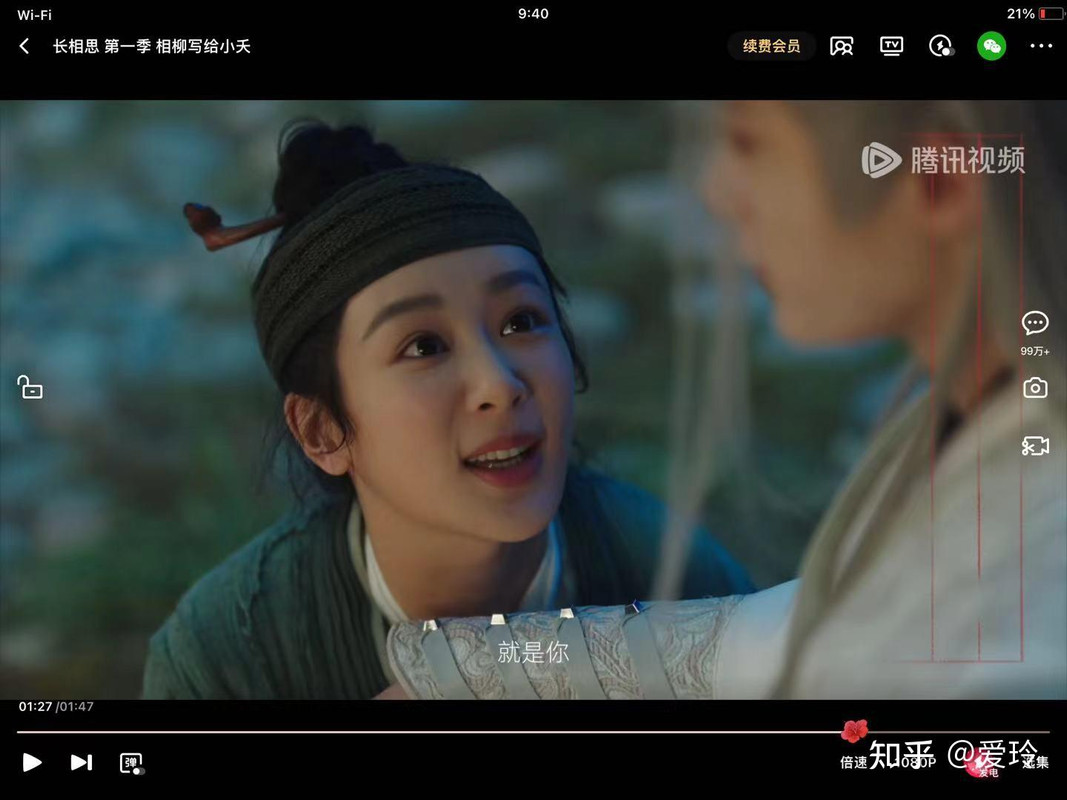
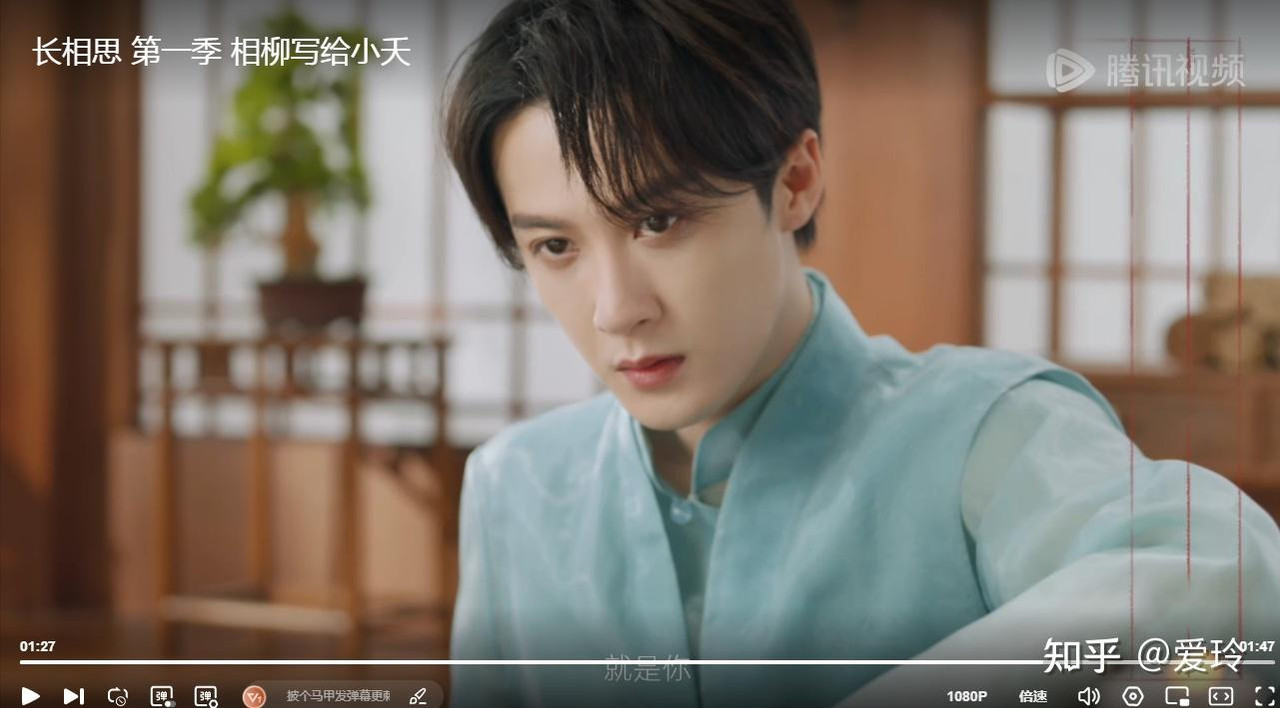
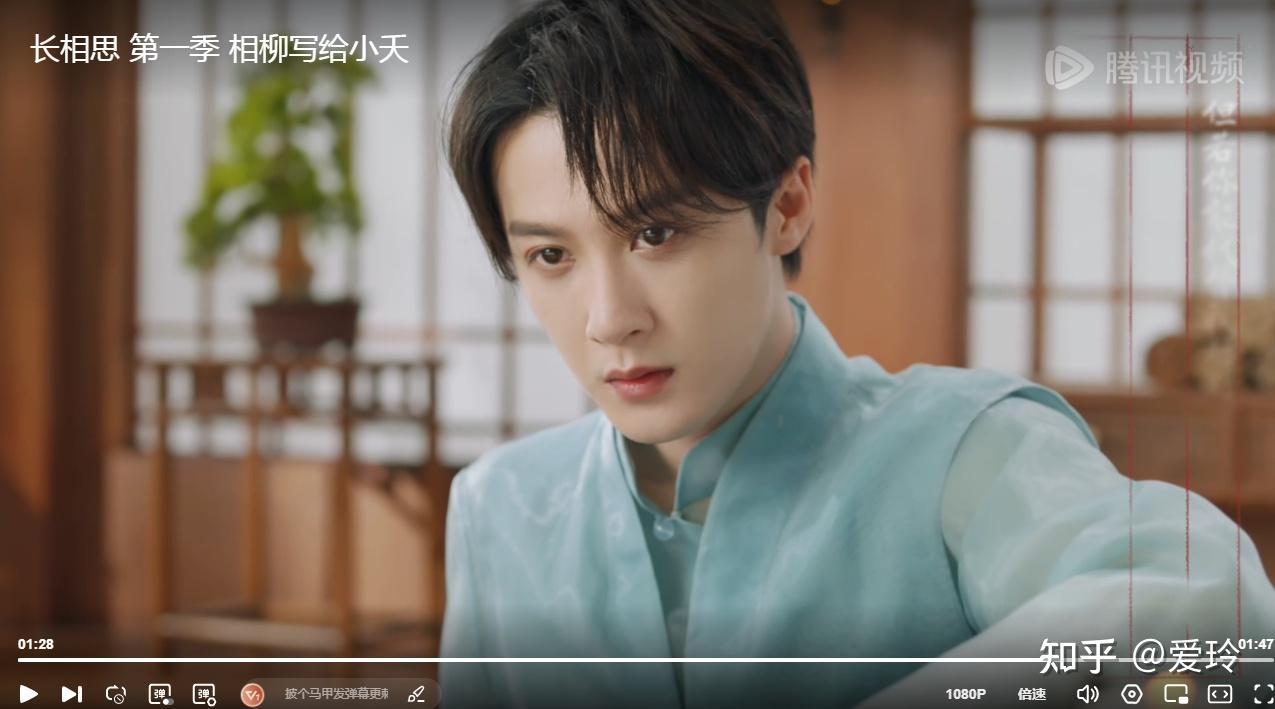 Analysis: Suddenly he realizes something; his eyes shift and light up. He understands that the only person Xiao Yao wants to be with for life is him. Afterwards, he smiles.
Analysis: Suddenly he realizes something; his eyes shift and light up. He understands that the only person Xiao Yao wants to be with for life is him. Afterwards, he smiles.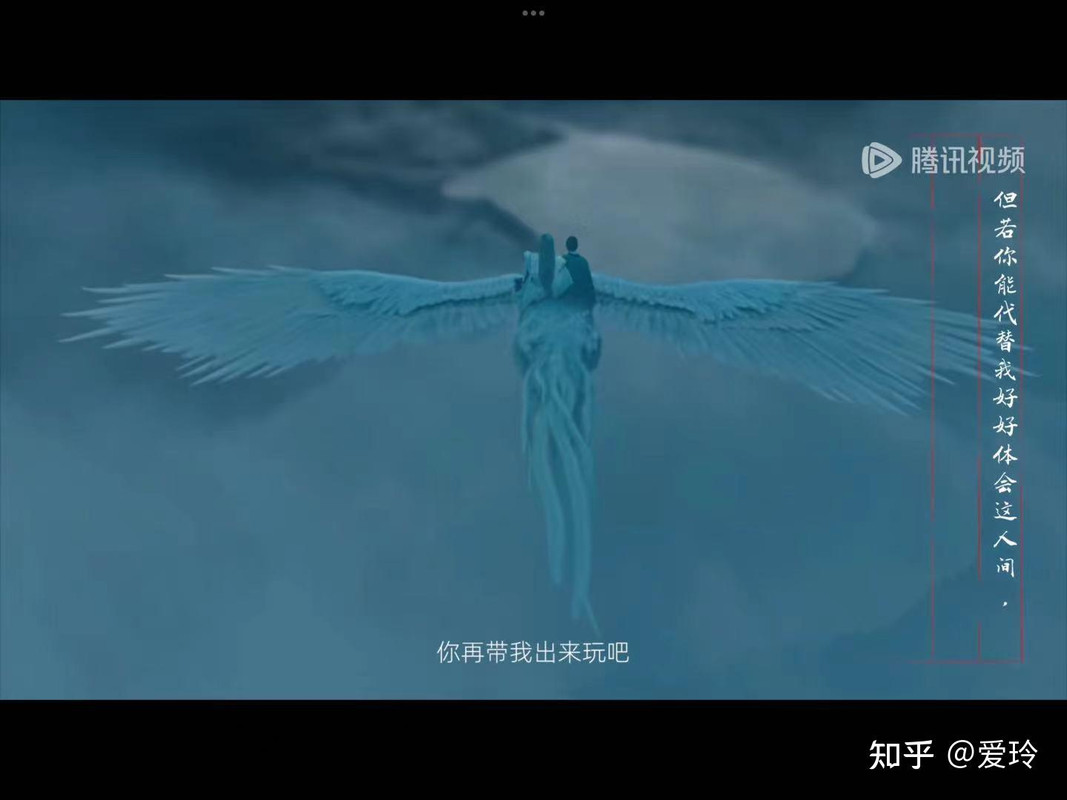
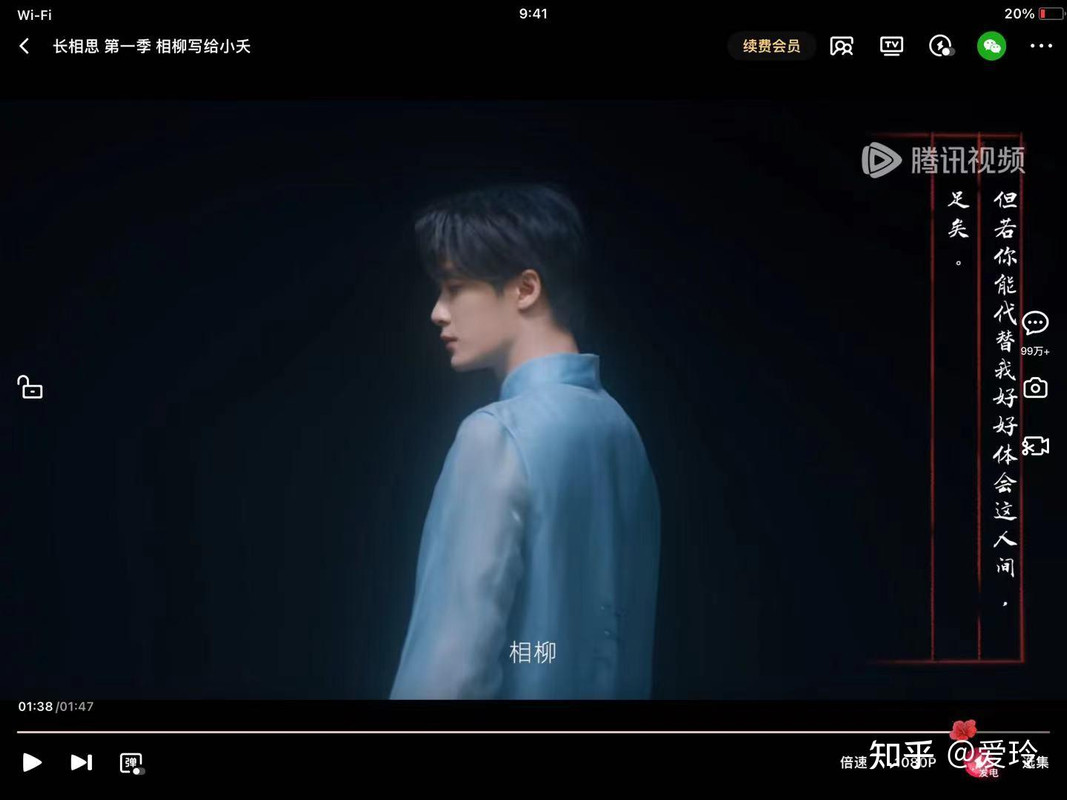 Xiao Yao (OS): “Xiangliu!”
Xiao Yao (OS): “Xiangliu!”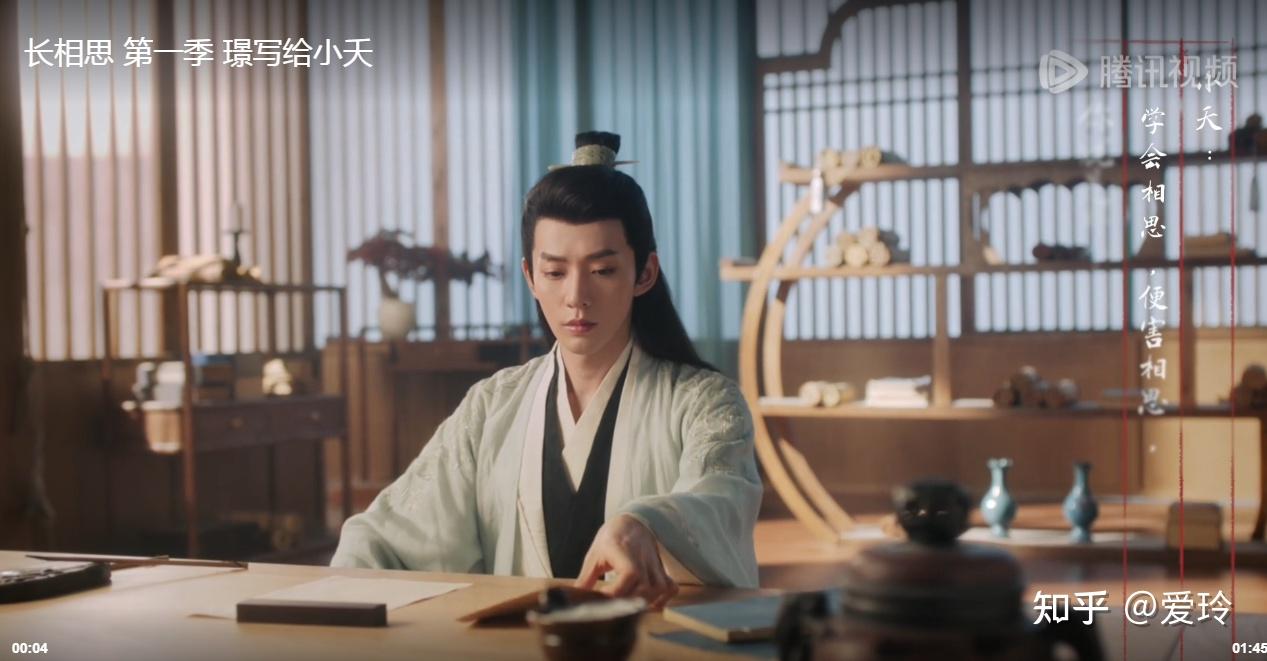
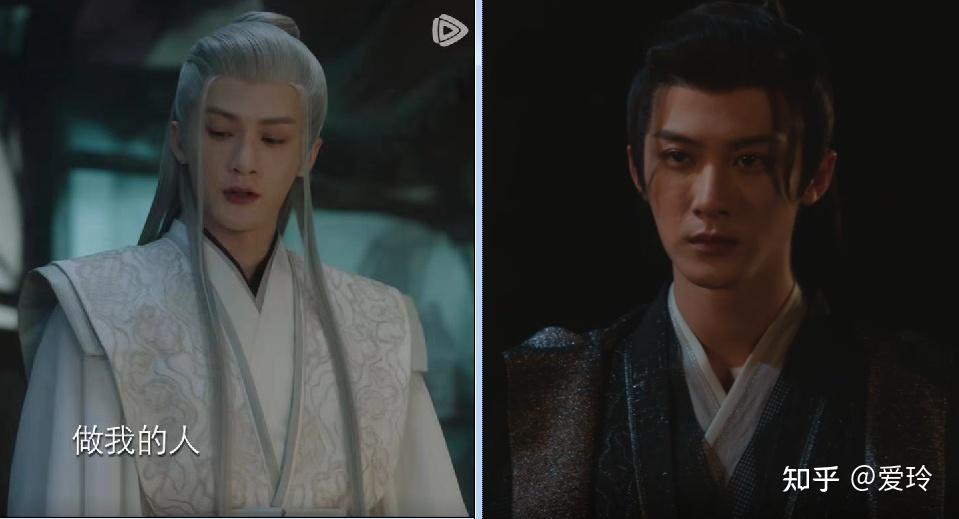

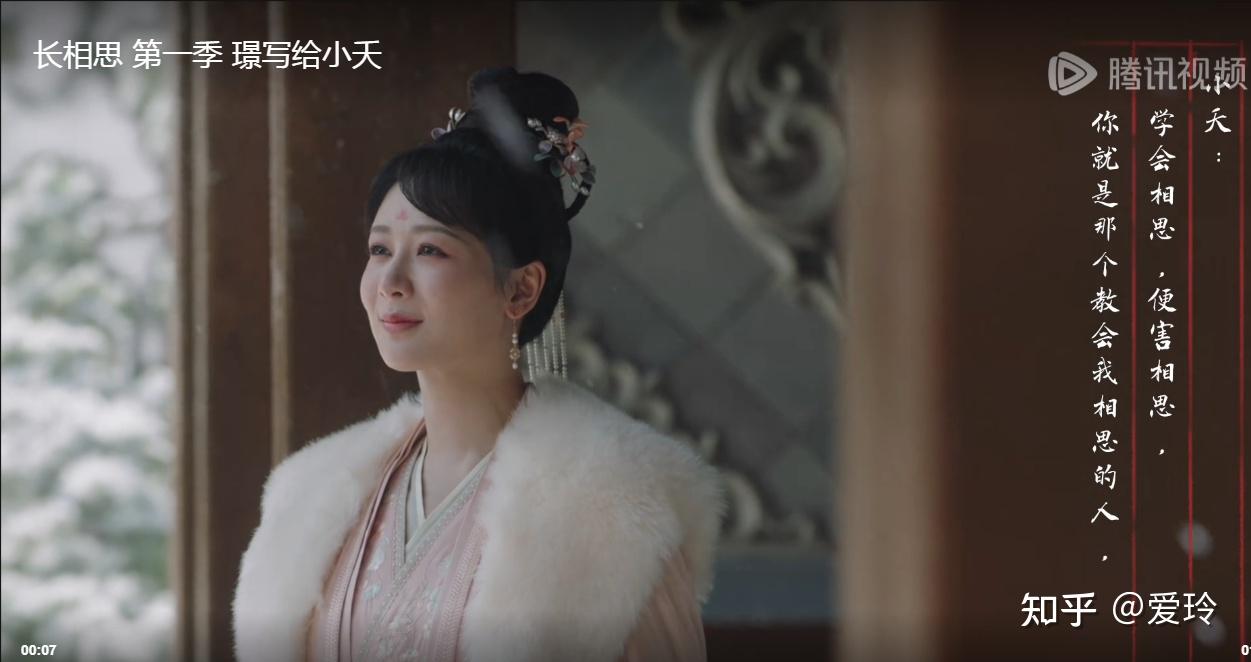
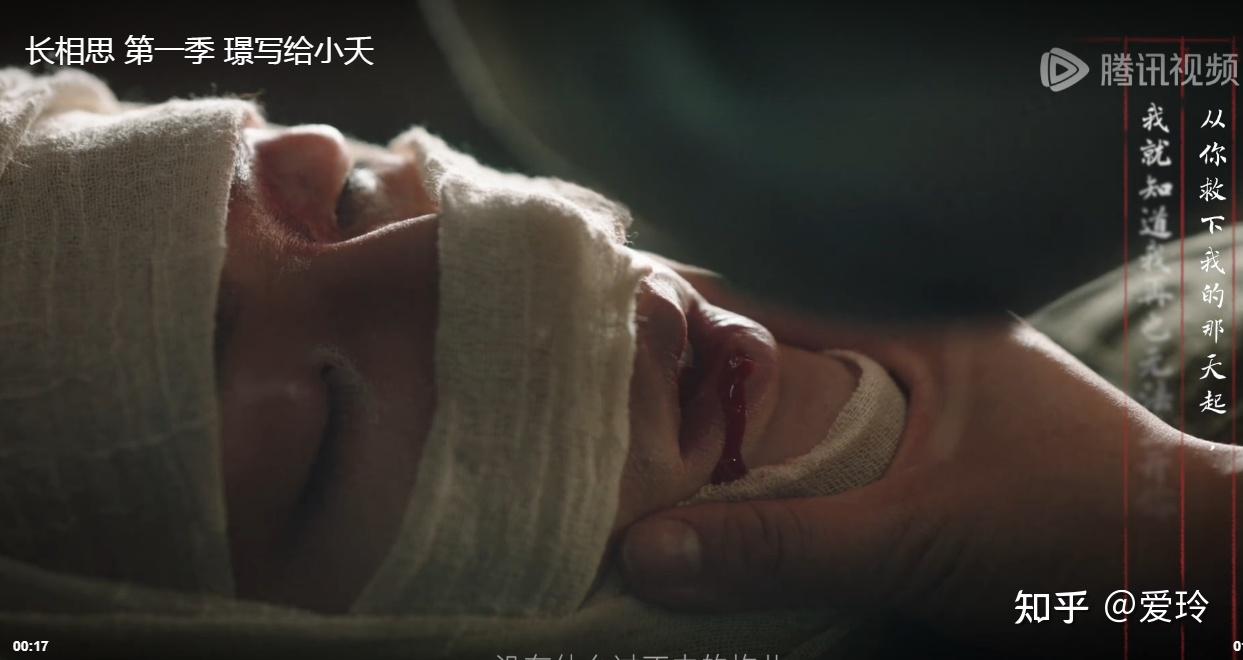
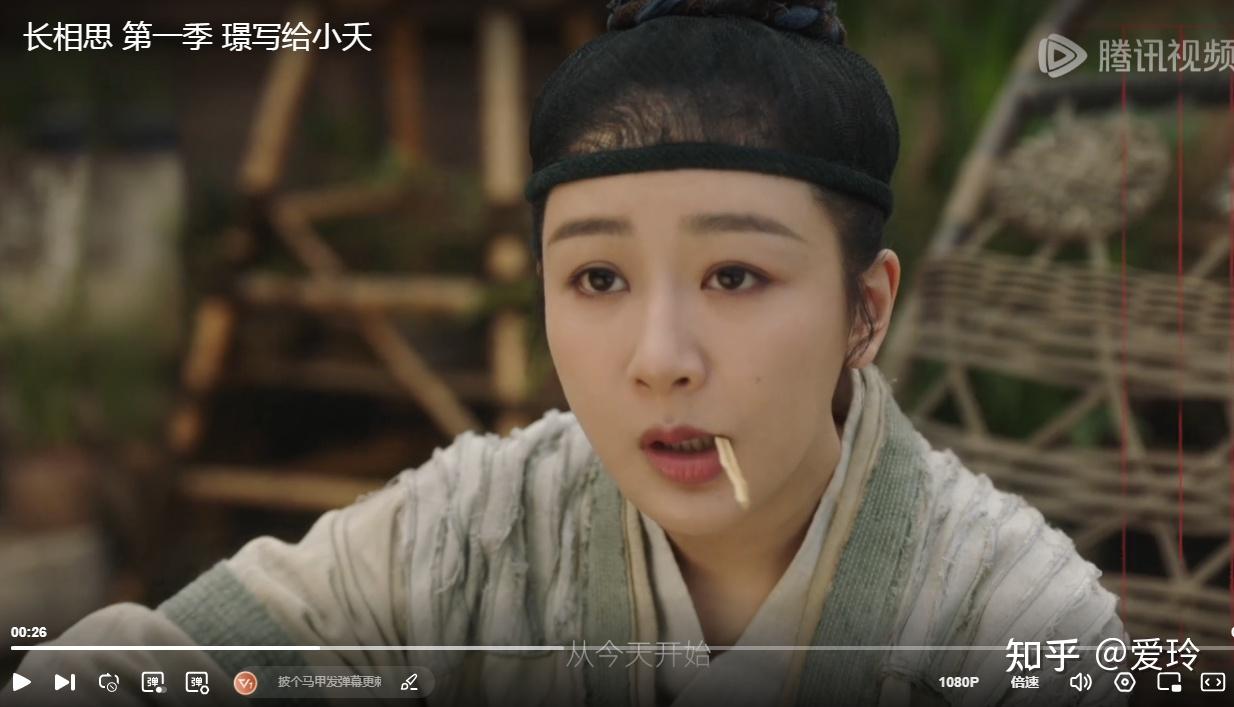
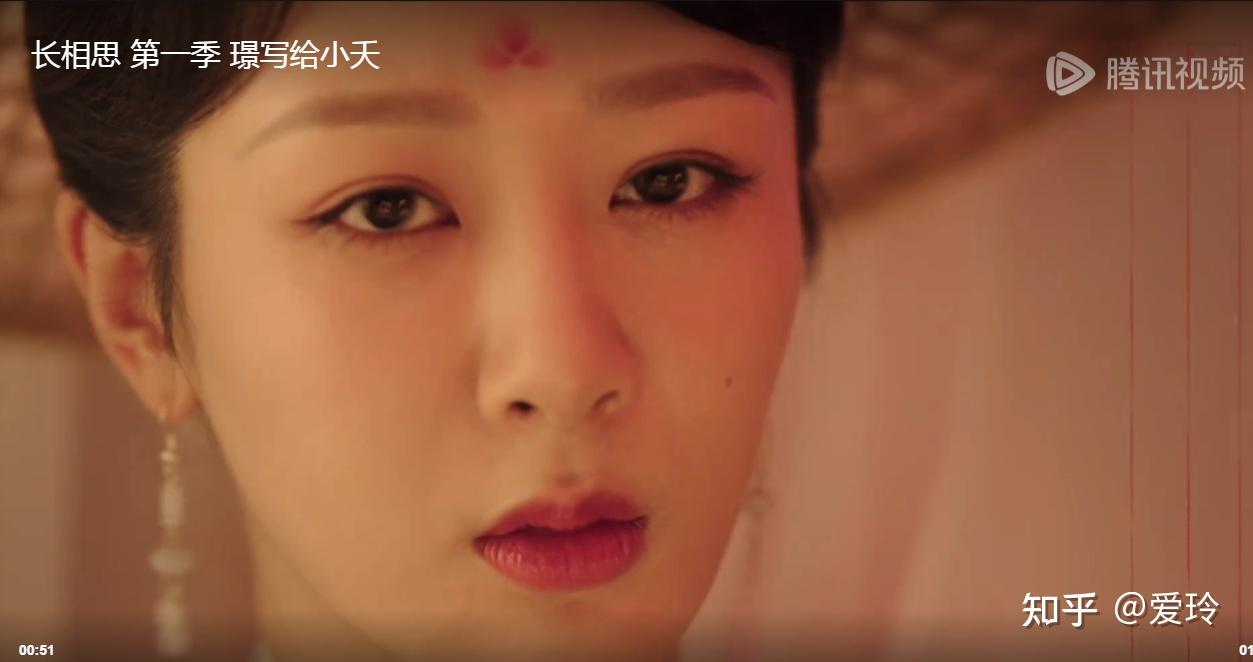 the first time seeing Fangfeng Bei from inside the veiled hat
the first time seeing Fangfeng Bei from inside the veiled hat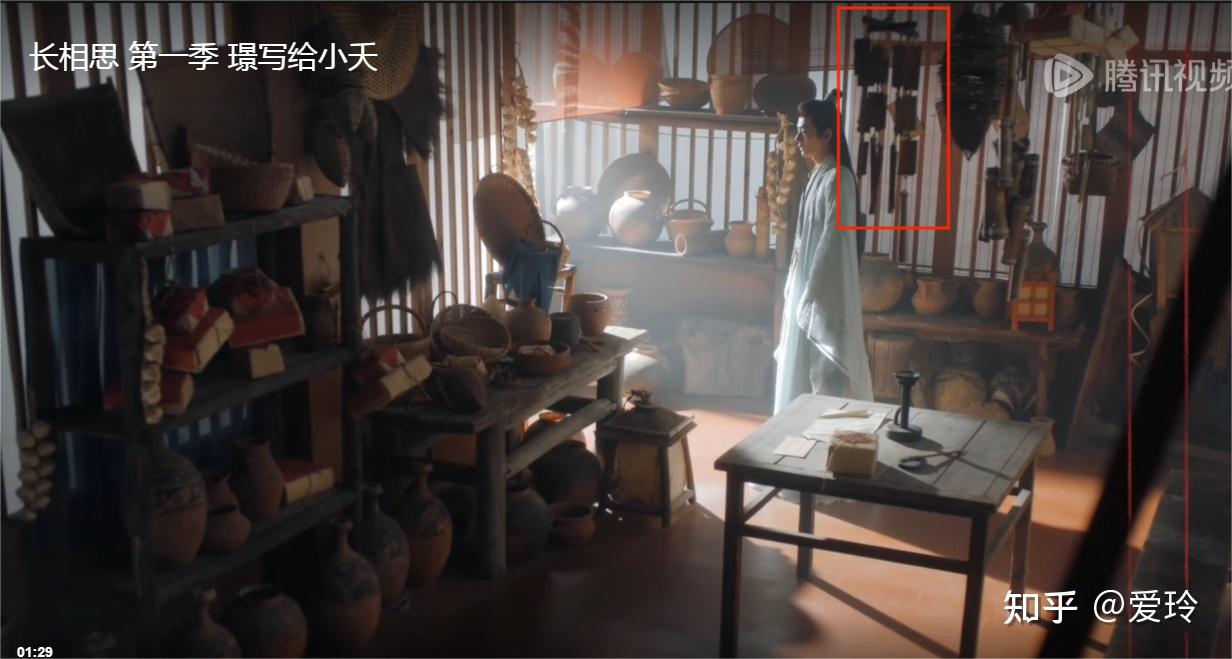
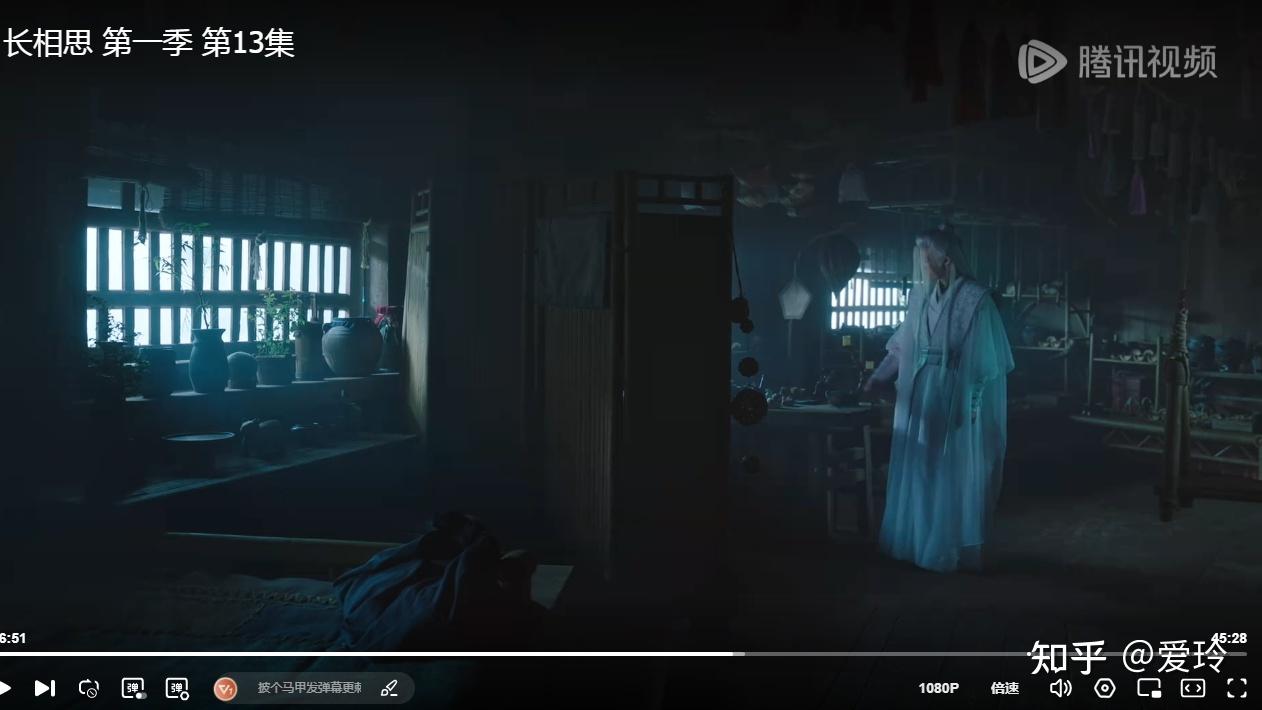
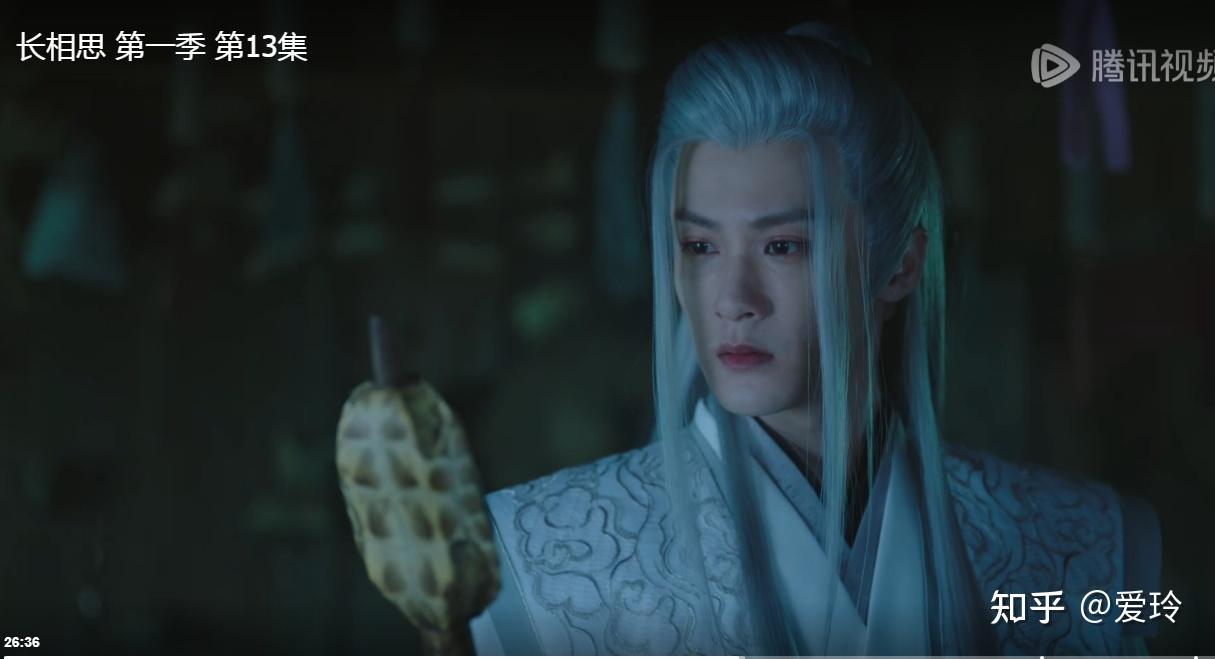
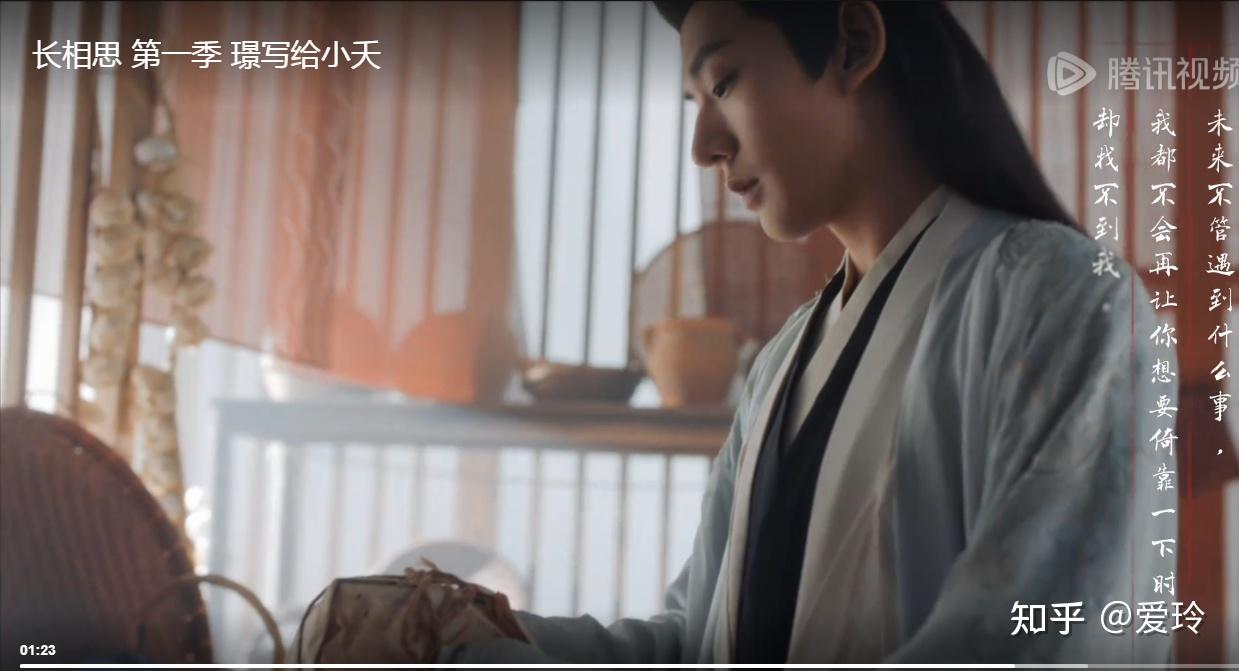
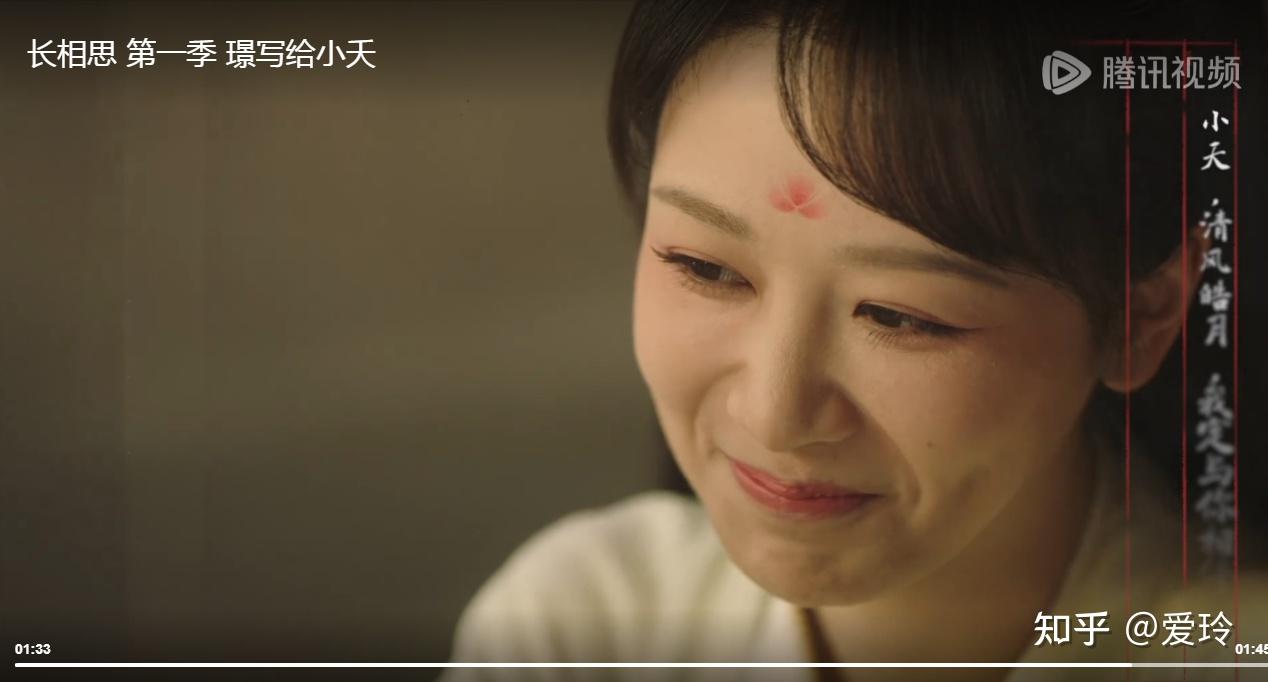
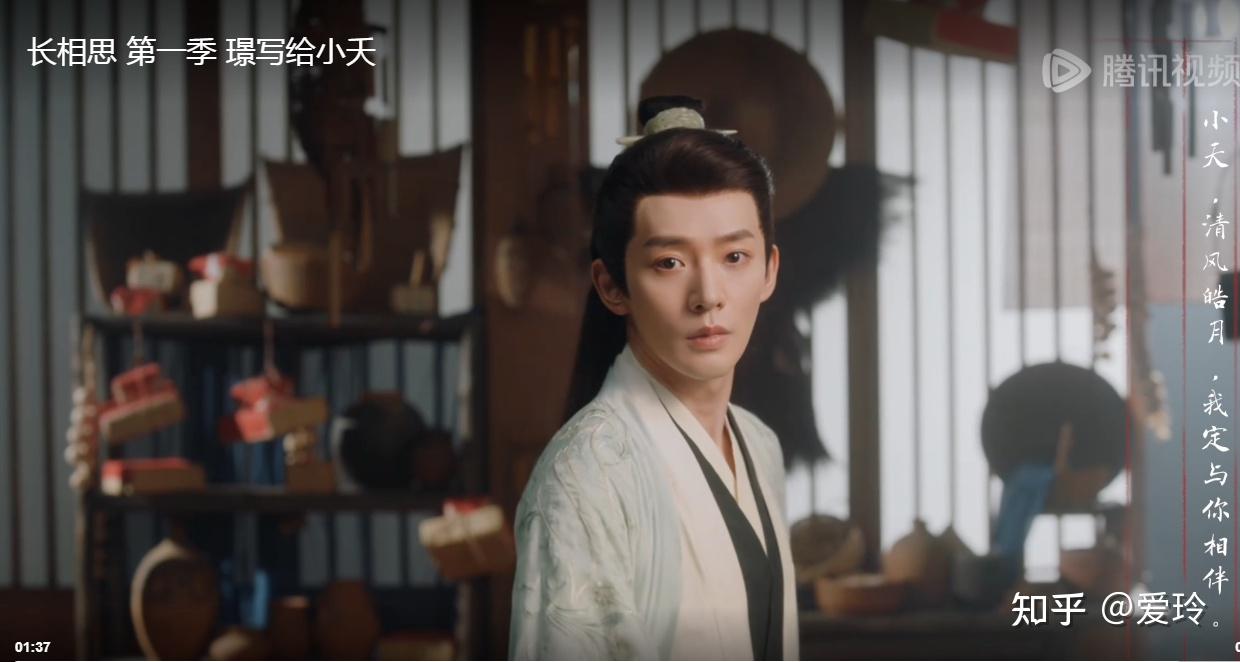 The final call, ‘Shiqi!’ — he finally waited for it.
The final call, ‘Shiqi!’ — he finally waited for it.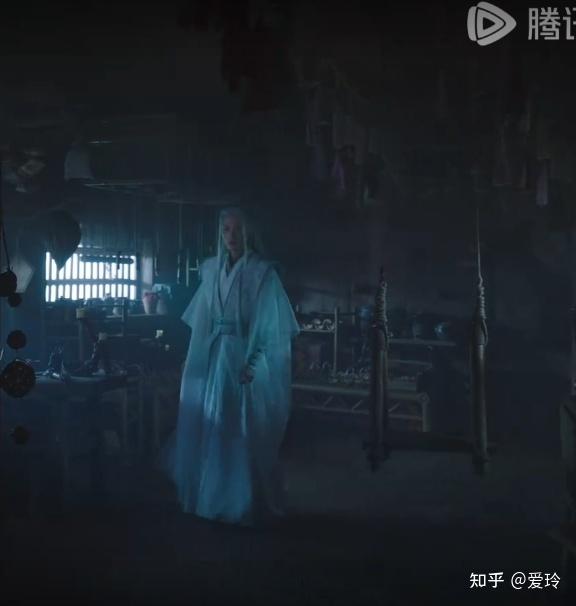 Xiang Liu also waited for it. Analysis: In the earlier episodes with the Qingshui Town storyline, many scenes serve as evidence that at the ending, Ye Shiqi is actually Xiang Liu’s return. In between, there are two versions of Ye Shiqi.
Xiang Liu also waited for it. Analysis: In the earlier episodes with the Qingshui Town storyline, many scenes serve as evidence that at the ending, Ye Shiqi is actually Xiang Liu’s return. In between, there are two versions of Ye Shiqi.

